#but the genre as a whole has a very rich and diverse history and the way ppl throw it under the bus is the exact way they throw
Text
not to be aggressively southern on main but ppl who think that singing with a twang and saying yeehaw to whatever beat they threw together automatically makes it a country song or even a country fusion………… this is simply not the case
#also making fun of country music is just not it man#like yes absolutely most mainstream stadium country artists are embarrassing bootlickers pandering to the least common denominator#but the genre as a whole has a very rich and diverse history and the way ppl throw it under the bus is the exact way they throw#all southern folks under the bus for the fact that they think we’re all backwards and bigoted#and I’m just. I know I’m not articulating this well but like#country music is an art form as much as any other genre and throwing on a cowboy hat and butchering an accent you’ve never heard irl#is just hollow and comes across so strongly as one big joke where the punchline is ‘some people sing like this unironically!!#and those idiots actually like it!!’#and I’m not even much of a country fan but it’s so clearly malicious towards southern and rural cultures that it’s just#come on. be better than this. be better than them.#personal
18 notes
·
View notes
Note
I love the way you write the headcanons about the First Years + Ortho going to the reader's world! Could you do the same with the Second Years, please?
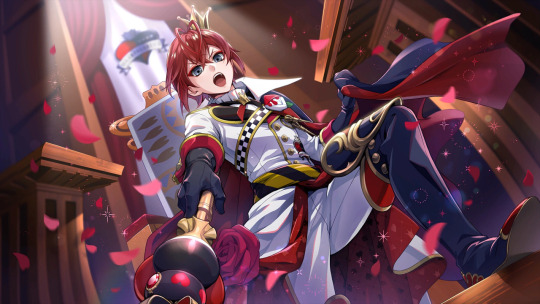
Riddle Rosehearts
Favorite Country/City: He would love to go visit Stratford-Upon-Avon in England, as he is one to enjoy being in the city of one of the most famous playwrights and authors in history: William Shakespeare. Also, there is tea available at most shops, so he will still be able to follow the Queen of Hearts’ rules.
Favorite Cuisine/Dish: Again, his favorite dish is strawberry tarts, and they apparently originate in France as tarts were used to showcase the seasonal not-berries. That aside, he also does appreciate French cuisine as a whole.
Favorite Drink: Again, he enjoys tea, but I think he would like strawberry lemonade. More specifically, the strawberry lemonade from those restaurants that put those slices of strawberries into the drink.
Favorite Souvenir: A small Shakespeare bust that he can place on a bookshelf as a book holder.
Favorite Singers/Songs: He absolutely loves classical music, specifically from the Classical Era. He prefers the classics: Bach, Beethoven, Marianna Martines, etc. Favorite song would be Für Elise, by Ludwig van Beethoven.
Favorite Movie: The Phantom of the Opera, but the 1927 silent film version.

Ruggie Bucchi
Favorite Country/City: I originally was going to say that he would have liked Luxembourg because it’s one of the richest countries in the world, but I decided that would be too easy. I feel like he would love to go to Cairo in Egypt. It’s very rich in history and culture, and I’ve heard they have good food (someone confirm, plz).
Favorite Cuisine/Dish: His favorite food is donuts, and I looked it up and they apparently originate from either Ancient Greece/Rome or Medieval Arab chefs. That being said, either cuisines (Greek, Italian, or Middle Eastern) would be his favorite. He has a very diverse palate.
Favorite Drink: Depending on if he prefers coffee or tea, he would like either Mazboot or even Zjada coffee, or karkade (please correct me on any of this, I am not from the Middle East and have never been so if it’s incorrect you can tell me. Got this info from online).
Favorite Souvenir: A small, handmade pot that he found at one of the markets. He thought it looked interesting and thus purchased it. The vendor was really kind as well.
Favorite Singers/Songs: This is kind of hard, but AMERICAN HORROR SHOW by SNOW WIFE would be his favorite, meaning hyperpop would be his favorite genre. He gives me TikTok boy vibes for some reason, and he would also like most songs that popped up on his FYP.
Favorite Movie: Lion King, and I’m not trying to be funny. He just likes the “It’s not funny, Ed”, where Ed erupts even more into laughter. It makes him snicker a bit as well. Maybe I was trying to be funny.
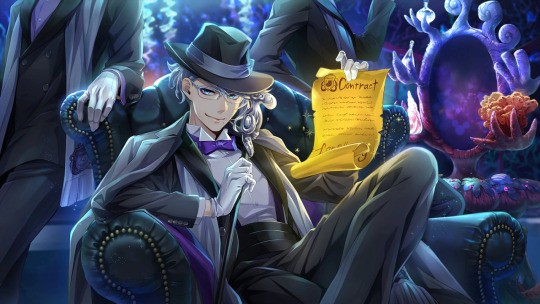
Azul Ashengrotto
Favorite Country/City: He would love the township of Cavendish in Prince Edward Island, Canada. It’s got the ocean, it’s got the small town vibes, and it inspired L.M. Montgomery’s fictional town of Avonlea in Anne of Green Gables. Speaking of, he would totally resonate with Anne because they both entered a society that they weren’t knowledgeable of the norms of.
Favorite Cuisine/Dish: Because he loves fried chicken, I would say his favorite cuisine is that of the Southern United States. You can’t go wrong with coleslaw, cornbread, green beans, mashed potatoes, and Southern hospitality.
Favorite Drink: Iced Tea, specifically from the Southern states as well. If we’re talking about cocktails, then Long Island Iced Tea would be his go-to. However, he prefers to drink at home because he doesn’t have to call anyone to pick him up.
Favorite Souvenir: It’s stated that he likes collecting coins, so yeah.
Favorite Singers/Songs: This man loves Elvis Presley’s music, and no one can fight me on this. He’s a bit of a hopeless romantic, so he loves either Heartbreak Hotel or Can’t Help Falling in Love is his favorite song.
Favorite Movie: Romeo and Juliet, the one starring Leonardo DiCaprio. The movie’s great, the actor not so much. He’s a bit of a hopeless romantic, as I stated before, so he would very much like a Romeo to his Juliet. Mans wants to be in a tower with a window sill and he wants someone to be standing below to talk to in a romantic way.
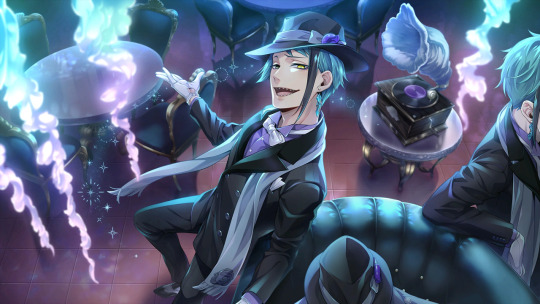
Jade Leech
Favorite Country/City: He loved going scuba diving in the Mariana Trench, and since the Trench is located between Hawaii and the Philippines, I think he would love staying in the Philippines. The city he favors would be Boracay, even though it’s in the middle of the Philippine Islands and a bit further from the East.
Favorite Cuisine/Dish: His favorite dish is octopus carpaccio, and it’s kind of obvious that it’s Italian. He does enjoy Italian cuisine as a whole as well. However, if we are taking the octopus components of the dish, then I believe he would also be a lover of Japanese cuisine.
Favorite Drink: It is recommended that with octopus carpaccio, you should have a Pinot noir, and he agrees. However, if he’s just going to a bar, he would order a limoncello spritz. It’s typically a post-dinner drink, and he likes the lemon flavor along with the kind-of-like-soda, kind-of-like-wine game that the drink offers him.
Favorite Souvenir: He loves smaller, easily portable trinkets, so as basic as it is he loves collecting keychains and magnets. His favorite keychain is a shell that had a hole in it, and a small child actually handed it to him out of nowhere. He got a ring and attached it to his backpack.
Favorite Singers/Songs: His favorite song is 24 / 7 / 365, by Surfaces. It’s laidback, it’s chill, and he likes it. Songs that remind him of the beach are ones that he likes. He plays it when he’s attending to his terrariums.
Favorite Movie: Jaws, and none of the sequels. All the sequels suck. He has watched the first Jaws so many times that he sings along with Quint when he starts singing “Farewell and Adieu You Fair Spanish Ladies”.
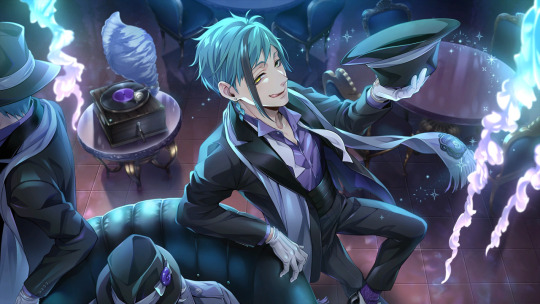
Floyd Leech
Favorite Country/City: He wants to go places where he can do things whenever it strikes him. He would also want to go somewhere with clear water. Thus, I believe he would love to go to Tahiti. There’s a market, he can go scuba diving with whales and sharks, he can go surfing, he can go to the museum, and if he wants to stay in his hotel room then he can.
Favorite Cuisine/Dish: His favorite dish is Takoyaki, so I think it’s safe to assume that he likes Japanese cuisine. However, it is stated that shiitake mushrooms come from mountainous regions in China, Japan, Indonesia, and Taiwan, so he likes any dishes without the mentioned mushrooms.
Favorite Drink: As funny as it is, Sex on the Beach, as it’s a summer drink that he loves to enjoy on the beach. Also, he has the emotional maturity of a 7th grade boy, and the name was hilarious to him.
Favorite Souvenir: Two little figurines of a guy and a girl dancing with each other. They fit together in a way that was complex, making it a puzzle of sorts.
Favorite Singers/Songs: Either Laffy Taffy or Sneaky Link 2.0 are his favorite songs. This man is searching for his Mrs. Bubblegum. He is looking to be somebody’s sneaky link. He lives for drama, and no one can tell me otherwise.
Favorite Movie: The Meg, because who doesn’t love a giant, prehistoric shark that escapes from the gaseous layer at the bottom of the Mariana Trench? He has sharp teeth like the megalodon, and he likes the jumpscare where the shark jumps up.
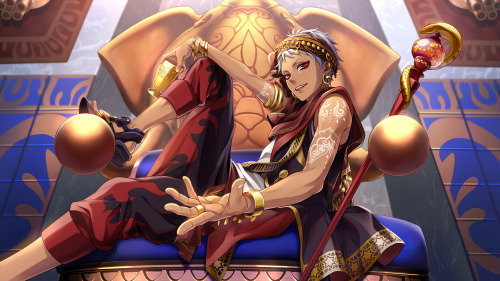
Kalim Al-Asim
Favorite Country/City: He loves tropical areas, but he loved the Bahamas and the capital of Nassau the most. The resort there was great, and the people were very friendly. It was a laid back time, and it was not even a five minute walk to the beach. Plus, coconuts grow there apparently (correct me if I’m wrong), and coconut juice is his favorite food.
Favorite Cuisine/Dish: A lot of Thai food, specifically the desserts, use the flesh of the coconut, so I think I have substantial evidence to say that he does like Thai food. He would be very hesitant to try Thai curry, though… unless he had somebody to try it with him.
Favorite Drink: Piña Colada, doesn’t matter if it’s virgin or not. He loves the song that accompanies it as well. Anyways, the drink is a very fruit-filled drink. He thinks it’s the right amount of sweetness, so he loves to enjoy it.
Favorite Souvenir: A singular photograph, as he somehow found himself involved in a volunteer program and he took a picture with children from one of the villages he was volunteering at.
Favorite Singers/Songs: He also likes songs that remind him of the beach, and I stated that he probably likes the song Escape (The Piña Colada Song), but it’s not his favorite. His favorite song would be Celebration, by Maffio, Farruko, and Akon (feat. Ky-Mani Marley).
Favorite Movie: I have a feeling that he would love the movie Shrek. It’s funny, a lot of memes have been made from all the movies, all the sequels are great. What’s not to love about the movie(s)?
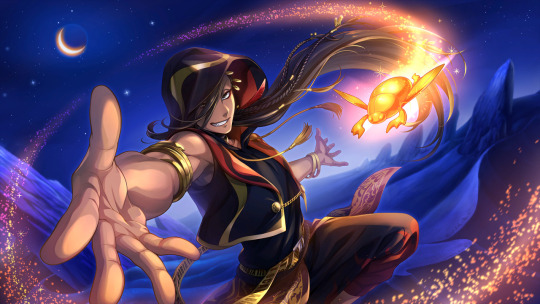
Jamil Viper
Favorite Country/City: He gives me a vibe that I resonate with on the historical front, so I would think he would like to visit somewhere in the Middle East, as that is where ancient Mesopotamia was. Specifically, he would love to visit Ur, in Iraq. Not only is it located in a desert (familiar territory), but it’s one of (if not the) first cities in the world.
Favorite Cuisine/Dish: Unlike Kalim, he loves curry, so that gives me reason to believe that he would enjoy Indian cuisine the most. Syrian food comes in second for him (I spend a lot of time at my friend’s Syrian house and they make good food… I’m hungry now).
Favorite Drink: This was difficult, but I feel like he would move towards margaritas, and not just because of the song. Because curry can be spicy, I would say he likes a spicy margarita as well. His favorite non-alcoholic drink would be a mangonada.
Favorite Souvenir: All the books he picked up to learn different languages. He learned along the way as well, and all of the books have annotations within them so he has them for future reference.
Favorite Singers/Songs: He likes breakdancing, so he likes any song he can breakdance to. I am not very involved within this genre of music, so after doing some research I have come to the conclusion that he would love the song The Witch, by the Bamboos.
Favorite Movie: Footloose, as it’s a movie about dancing and rock music being banned. He saw it because it looked interesting, and he learned the Footloose dance. Also, the song Holdin’ Out For a Hero makes him feel like he wants to be someone’s hero.
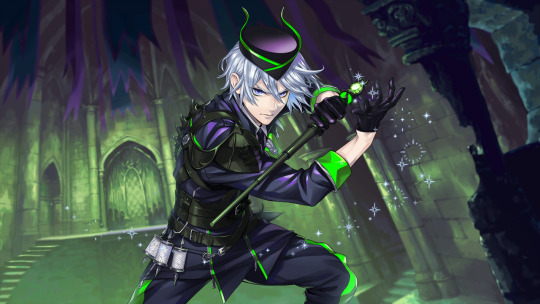
Silver
Favorite Country/City: Carrickfergus, as it holds the Carrickfergus Castle. It may be a Norman castle, but it’s because of the history (and the fact that he may be based off of both the Princess and the Prince and thus deserves a castle {personal opinion}) that he enjoys his time in the town.
Favorite Cuisine/Dish: This is the first time I’ve actually dove into investigating Silver’s likes and dislikes, and apparently he likes mushroom risotto, which is thought to originate from the Italian region of Lombardy.
Favorite Drink: He strikes me as the type to like wine, and not the bitter stuff. He likes sweeter wines, especially white wines as they pair nicely with the risotto he loves.
Favorite Souvenir: A journal, in which he writes about his many journeys around the world.
Favorite Singers/Songs: I think he is a Swiftie. That being said, his favorite song would be Love Story, as he is looking for his Juliet. However, he is not one of those over-excited fans who will tear someone up for saying they don’t like Taylor Swift’s songs. He will just judge them quietly.
Favorite Movie: Gladiator, partially for the plot, partially for Russel Crowe. It reminds him of the training he had to go through as a knight.
#twst#twst x reader#twisted wonderland#disney twisted wonderland#twisted wonderland x reader#disney twst#twst wonderland#twst riddle#riddle rosehearts x reader#riddle rosehearts#riddle x reader#riddle#twst riddle rosehearts x reader#twst riddle rosehearts#twst riddle x reader#twst ruggie#ruggie x reader#ruggie bucchi x reader#ruggie#ruggie bucchi#twst ruggie x reader#twst ruggie bucchi#twst ruggie bucchi x reader#azul ashengrotto x reader#twst azul x reader#twst azul#azul x reader#azul#azul ashengrotto#twst azul ashengrotto x reader
248 notes
·
View notes
Text
Australia's reggae revolution
Reggae is one of the main genres of Australia’s modern music scene, but how did a Jamaican style of music become part of a culture on the other side of the globe? During the 70`s and 80`s reggae became increasingly popular in Australian streets, and it merged with other genres giving birth to a new exciting style of playing. Australia’s culture and politics is the main factor to these movements and has created a positive environment to reggae’s renaissance.
Firstly Australia has always been well known as a multicultural country with intense immigration policies and benefits for foreigners, consequently this has led to a country full of different cultures and ethnicities. Throughout history this has always been present, in 1928 a poster was made saying “the southern cross; the stars which shine over Australia the land of opportunity; The call of the stars to British men & women”, or their human rights department which says “This rich, cultural diversity is one of our greatest strengths. It is central to our national identity.” Even with all immigratory waves and countless incentives indigenous people are still very present in their culture, with a huge impact in sports, music, holidays, etc. This has everything to do with the big effervescent mix of culture that, as a country, Australia is.
Multiculturalism of course affects culture, but how? There are numerous examples of this phenomenon, one of them might be the accent spoken by “aussies”. It is unique and is a mix of British accent with native expressions and ways of pronouncing words, this has created a whole new way of speaking English. This also happens in music, where for example, reggae has merged with local rhythms and different country musical rhythms, creating a distinct and modern variation of reggae. For instance, the indigenous reggae band Mantaka are a great example of this, the lead singer was a grandson of Indigenous people people.He found out about reggae on a contact with the hippies that migrated to the southern part of the country, he also instantly related to the lyrics about oppression and suffering as well as with the involving rhythm. You can hear one of their masterpieces on this link: https://youtu.be/O8nRfBzJlDs.
This multicultural environment creates generally good consequences to society.Bands like Stick Fingers are part of a new Australian reggae movement, and represent that in a genius way on a song called “Australian Streat” for example the reality of young Australians, that desire to go back to the past, and the struggle to stop reminiscing about the past. Those movements represent the youth and are a big deal when it comes to political representation and overall wellness of a country, as art, in this case music, is a big stage to show pain, suffering and other feelings of a group of people. Only when Brazil's government invests in these policies can we get good consequences like Australia.
To sum up, this new and fun style of play has derived mainly from incentives from the government on culture, immigration and multiculturalism. The young and exciting reggae movement in Australia is a symptom of years of different cultures and ethnicities getting together.
0 notes
Text
10 Most Famous Swiss Singers
Switzerland has long had a distinct cultural identity, despite its diversity of German, French, Italian, Romansh, and other ethnicities.
Religious and folk music dominated the country until the 17th century, with growth in the production of other kinds of music occurring slowly.
Fast forward to the 1990s, many rappers and DJs started to influence Switzerland’s musical scene. Swiss musicians enjoy a worldwide reputation, for commercial success.
Here are the 10 most famous Swiss singers.
1. DJ BoBo
Peter René Baumann, better known as DJ BoBo, is a Swiss singer-songwriter, rapper, dancer, and music producer. He was born on 5th January 1968 in Kölliken, Switzerland.
His music genres are Pop, electronica, reggae fusion, house, and eurodance. He has sold 14 million records worldwide and has released 12 studio albums as well as a few compilation albums which have included his previous hits remixed.

2. Beatrice Egli
She has been singing since the age of nine, and at 14 years she began taking singing lessons and singing at folk festivals. This singer has sold over 1,000,000 records in Germany, Switzerland, and Austria this far.
She was the winner of season 10 of the German music competition ‘Deutschland Sucht den Superstar. Egli became the second contestant from Switzerland to win the title after Luca Hänni.

3. Gjon’s Tears
This singer acquired his stage name when he was still a child after moving his grandfather to tears when he performed for him.
He is a great musician. He won the MTV Europe Music Awards, Best Swiss Actin 2Lady

4. Ladyva
Vanessa Sabrina Gnaegi, also known as Vanessa G o Ladyva is a Swiss pianist, singer, and composer. She was born on 8th December 1988 in Ipsach, Bern, Switzerland.
Ladyva started playing the piano when she was 14. This musician genres are boogie-woogie, blues and jazz. Her YouTube channel has over 39 million views.

5. Bastian Baker
This singer’s heartfelt and hard-hitting melodies and texts reveal a heightened sensitivity. He writes in English because it’s a common language and it’s an important factor when sharing your music with the whole world.

Baker has been crazy about music since he was very young. He took guitar lessons for many years and was also the soloist in a choir. His music is an example of the rich and diverse Swiss music scene.
6. Luca Hanni

Luca Hänni is a Swiss pop singer and television personality. Hänni was born on 8th October 1994 in Bern, Switzerland. He learnt drumming in kindergarten. He is also a self taught guitar and piano player.
Hanni created history by becoming the youngest and the first non-German winner of the German talent show Deutschland Sucht den Superstar. He has many albums and has also released several hit singles.
His songs top the Austrian and Swiss Albums Charts and became gold-sellers in both countries.
7. Dieter Meier
Dieter is a Swiss industrialist, musician, and conceptual artist. He was born on 4th March 1945 in Zürich, Switzerland. For the Music group, Yello, he is a vocalist and lyricist, as well as manager and producer.

8. Stephan Eicher
Stephan Eicher is a Swiss singer and songwriter. He was born on 17th August 1960 in the rural municipality of Münchenbuchsee not far from Bern, Switzerland.
He sings in a variety of languages, including French, German, English, Italian, Swiss German, and Romanche, sometimes using different languages in the same song.

He released his first greatest hits compilation album entitled Hotel*s in 2001 as a tribute to the hotel Hess on the Swiss Engelberg which was his second home. Martin Hess, the hotelier couple’s son, became his close friend and producer.
9. Anna Murphy
Anna Murphy is a Swiss musician, singer, songwriter, and audio engineer, best known as the female lead vocalist of the Swiss folk metal band Eluveitie. She plays the flute and hurdy-gurdy.

Her music genres are folk metal, melodic death metal, Celtic metal, and progressive metal. She at one time worked as an audio engineer at the Obernauer Soundfarm Studios in Lucerne.
10. Tina Turner
Anna Mae Bullock popularly known as Tina Turner is an American-born Swiss singer and actress. Tina was born on 26th November 1939 in Brownsville, Tennessee in the United States of America.

Tina is often referred to as “The Queen of Rock and Roll”, and is considered one of the greatest singers of all time. She is well known for her swagger, sensuality, gravelly vocals, and unstoppable energy, not forgetting her career longevity and her famous legs.
Tina has received so many awards and honors over the years including being recognized by the John F. Kennedy Center for the Performing Arts in Washington D.C., two-time inducted into the Rock and Roll Hall of Fame, and stars on the Hollywood and St. Louis Walks of Fame.
Tina applied for Swiss citizenship and she became a Swiss on 22nd April 2013 and was issued a Swiss passport. She gave up her American citizenship at the U.S. embassy in Bern later that year.
Sources : https://www.discoverwalks.com/
0 notes
Note
I think one weird point is your analysis is when you cite other eras and cultures having jumbled mythology stories and then say humans are cheesy…. Perhaps humans are diverse and there has been and will be a minority(?) population who are not cheesy and who are tired of ALL that shit. If I were in Ancient Rome I would be bitterly complaining about the fake histories and lack of interest in the exact cut and dry truth and what it tells us instead of entertaining (and obscuring) fictions. Especially when those fictions were being taken as history by many and tended to teach specific ideologies that weren’t even been seen as being driven in by those story-vehicles. I have always hated and will always be tired of cheese. Don’t feel like it’s the position of a lesser mind who needs to change it’s just a different feeling.
This is a fair observation. I get the exhaustion with motifs and devices that feel contrived or played out. This was my experience of mid-2000s “edgy” works like Battlestar Galáctica or Heroes. These are definitely two shows that had me grinding my teeth by their third seasons because I felt like what I was given wasn’t what I signed up for. What I enjoyed at the beginning felt increasingly distant.
I’ve also been incredibly annoyed by certain aspects of how Disney Plus has handled action sequences featuring “minion” type enemies in Star Wars and the way that beskar seems to magnetically attract blaster bolts. It has often felt like a rail shooter on trivial difficulty spliced onto a mostly interesting plot.
So I get it. I wouldn’t be as interested in the weeds of world building if I didn’t think there was something rich to be gained from taking this stuff seriously. I keep referencing “The Drumhead” a lot because I think it really shows what Trek is capable of when it pushes itself. Yet that’s also not all Star Trek is. It mixes and matches itself with a lot of other genres and frequently the outcome is a very Whovian loose approach to continuity and a fair bit of mirth.
Part of looking at Trek as a sort of modern oral storytelling tradition is my own way of accepting the artificiality of it. Trek has been a very meaningful part of my life from my earliest memories and I’m not without some very strong opinions about what is and isn’t “good” Star Trek, they just happen to be more oriented towards themes and the setting’s moral assumptions than whether the fan service is over the top or there are obvious continuity errors or oversights. I recognize these things but I don’t experience them as particularly irksome. Usually.
While I love many properties that take themselves deadly seriously, The Expanse for instance, I just realize it’s only one storytelling style that Trek engages with. After spending many a year griping about canon on Spacebattles and Stardestroyer.net, I got to a place where I found no joy in the hot take. I still love a well crafted head canon to “fix” a blunder, but now I take a look at continuity violations and cheese and ask myself whether it serves a purpose or if there was a better, more consistent and less cringe way to go about things.
Having said that, if I’m not mistaken my next rewatch is what I consider to be the worst episode of Picard season one, maybe the whole series. So I have limits although I make it a point of pride to hold my opinions loosely. I want to reevaluate Picard because I suspect and have found much that appeals to the serious, contemplative fan in me that I think is tragically and frequently lost in the fandom civil wars.
But if I have failed to make it clear, I think Star Trek belongs to both the Memory Alpha contributors and the people who unironically like the Abrams films. I have no beef with serious fans who prefer the crunchy side of sci-fi as long as we can have a mutual understanding that this setting contains multitudes and there’s a very important line between rendering critique of an entertainment property and treating each other unkindly for liking different thing.
When I tease the archetype of the reactionary fan or the person who too literally wants it to be a documentary of the future, this is really directed at a type of person who is not reflective about their own preferences and feels the need to be abusive to other fans or otherwise tend to get rather hyperbolic beyond any sense of proportionality. If that doesn’t sound like you, then we are part of the same rowdy team.
1 note
·
View note
Photo

Maybacc just joined forces with Soulja Boy for a new release: "Pound."
December 2022 - Maybacc is an artist with a distinctive and refreshing approach to music. Instead of being stuck in a single style and genre format, he is all about exploring a wider range of styles. These include modern hip-hop and old-school rap, two of the most prominent pillars in Maybacc's music.
"Pound," the artist's most recent release, perfectly depicts this vibrant and diverse formula. This release has been highly anticipated for quite some time now, as hip-hop fans have been looking to get onto some new material from Soulja in quite a while now.
Today, his collaboration with Maybacc is truly spot on. The chemistry between both artists is on-point, and what's special about this particular release is that each person has an incredibly distinctive sound. This is why there is so much variety on tap, the kind you only get in this industry when passion comes first and above all else. The use of two world-class talents nailed it on this one. The song is also excellent in terms of sheer soundscapes.
The mix is balanced and detail-oriented, making for a lively, edgy, and stark sonic approach. In other words, this release has many subtle nuances, which add to the richness of the track when summed up together.
The frequency spectrum of the mix is also very balanced, with a tight yet deep low end is working wonders along with a smooth top end, which adds a sense of clarity to the music. Soulja Boy, born DeAndre Cortez Way, made rap history when he achieved a Billboard Hot 100 number 1 with a single that he essentially self-released. This was the beginning of a phenomenal career, and even many years later, down the line, the whole world could see that Deandre had something special to offer. He continues to create amazing music and even supports up-and-coming artists and young promises, such as Maybacc himself. This is another thing that makes this feature so special! The two artists understand where they're coming from musically, and the synergy on this track is mind-blowing. This kind of track will surprise you with its sonic variety, and it will keep you on the edge of your seat due to its catchy yet unpredictable arrangement. I always love to hear from artists who set the bar higher and push the envelope regarding their productions: this certainly appears to be the case.
The song is immersive and engaging, yet incredibly fun and easy to relate to for the audience to the incredibly high quality of the production and the artist's genuine performance style. Fans of the golden age of rap music and the modern scene should give "Pound" a go! This release is a great "first taste" of what Maybacc is all about, and it serves as a great introduction to this artist. You cannot go wrong with this one if you are a fan of great hip-hop music with a special twist.
Find out more about Maybacc and do not miss out on "Pound," with the legend himself Soulja Boy.
https://music.apple.com/us/album/pound-feat-maybacc/1339461104? i=1339461841
https://open.spotify.com/track/5y5uydOKHIWUzDfG4YAut5?si=EKJ_JoXKRxqv- DkOL-KUtew
https://www.iheart.com/artist/soulja-boy-709736/songs/pound-feat- maybacc-53466361/?autoplay=true
https://www.boomplay.com/songs/1404758 https://music.youtube.com/watch?v=9IEAKJPe5Qg
https://www.pandora.com/artist/soulja-boy/king-soulja-8-explicit/pound-feat-may- bacc/TRXrpVww4VgVqvP?corr=knowledge_panel&part=google

0 notes
Photo

September 25th is...
Better Breakfast Day - Breakfast has always been an essential part of our diet, and has been seen as important throughout history. Recently in an attempt to make breakfast easy in a fast paced world, we’ve taken steps to reduce the time needed to prepare it. Unfortunately, this has also led to a marked decline in the quality of our breakfasts, with most choices reduced to high amounts of grain based carbohydrates drenched in sugar. This day was established to remind us that just because any breakfast is better than no breakfast, that doesn’t mean we should skimp on what we put in our bodies at the start of the day. Rich eggs, solid protein from meat, and a reasonable portion of grains (Bread or oatmeal, for instance) will help us keep motivated.
Binge Day - The day to catch up on your favorite series. While reports say that many people start to feel guilty after having watched a few episodes, thinking there was a better way they could have spent their time, binge-watching actually has some very real benefits. By binge-watching a show, you allow yourself to relax and let the stress of the day slip away from your shoulders, and just enjoy your favorite stories for a while.
Comic Book Day - In 1837 there came a small, seemingly inconsequential shift in the way stories were told. One Obadiah Oldbuck was drawn into existence as a series of sequential pictures with text captions. It was originally created with the purpose of being a diversion for the creator and his friends, but all too unexpected it became incredibly popular in both the US and France. This is often considered the first comic, and Rodolphe Töpffer is often considered the father of the genre. This day honors this man and everything that has come to follow from that first humble publication.
Cooking Day - This day reminds us that there’s nothing that quite matches the flavor, comfort and experience that comes from a delicious home cooked meal. And it also helps us remember that learning how to cook is an important skill to enhance our health as well as passing various traditions on to friends and family.
Ghost Hunting Day - Ghost hunting stirs up images of abandoned mansions with murderous histories. For others, ghost hunting involves specters guarding ancient crypts. Centuries-old ghost stories around the world focus on historical records or literature. Science, religion, and academia debate their existence.
International Ataxia Awareness Day - Ataxia is defined as the loss of full control of bodily movements. In the medical world, ataxia is a degenerative disease of the nervous system. Symptoms include poor coordination, a tendency to stumble, difficulty with fine motor tasks, and changes in speech. Damage to the cerebellum causes the condition.
Quesadilla Day - Typically made with a corn tortilla and filled with cheese, we heat quesadillas until the cheese melts. Then it hits the grill or frier until just crispy. Some people also include other fillings such as cooked sausage, chicken, pork, or beef. And don’t forget the toppings. Fresh tomatoes, salsa, herbs, sour cream, guacamole, or chilies bring a whole other level of flavor to the quesadilla.
Rabbit Day - On this day we are encouraged to consider, not only the companionship offered by our favorite hutch-dwellers, but the various ways in which rabbits are harmed by medical and cosmetic testing, hunting, fur farming and, of course, casseroling.
World Dream Day - Established for the purpose of encouraging individuals, communities, businesses, schools, and families to take some time to concentrate on their dreams and make an effort to turn them into a reality.
World Pharmacists Day - The aim of the day is to bring attention to pharmacies and the positive benefits they offer when it comes to health.
14 notes
·
View notes
Text
Defense Films Names His Top 5 Favorite Rappers
In All It’s Infinite Glory And Magnanimity, Defense Gives You His Top 5 Favorite Rappers.
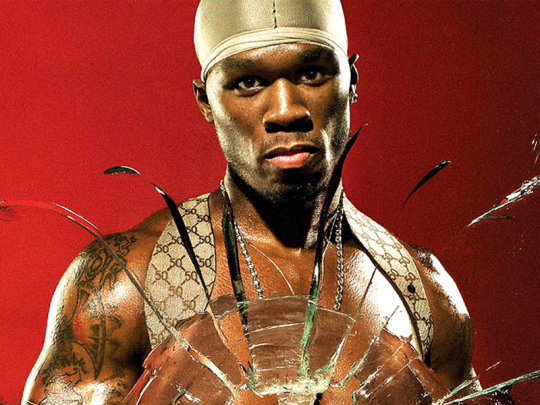
5. 50 Cent
To this day, when you need a playlist for a MMA class and the group is hella diverse, you’re not really sure which way to go with it, pop in that 50. Can’t go wrong with Get Rich Or Die Trying (the original), or even that G-Unit Beg For Mercy.
That run from late 2002-2005/06 was unlike anything you’ll ever see again. That was a perfect situation where there was organic support from fans and there were people at a business level, mainly 50, that knew how to turn it into the wave that it became and industry has been trying to replicate this ever since.
While most people remember is the numerous scandals, beefs and controversies of that time but it was the music that moved the audience. For all the ways 50 Cent’s success mirrors ruthless American capitalism, his debut album is low key one of the most inspiring albums you’ll ever listen to.
It’s a foxhole mentality on wax. It’s me-versus-you type thinking. It’s someone has to lose and I’ll be damned. It’s who ever has to get hit, is gonna get hit.
See the first time I listened to it, it was about “In Da Club”, “Wanksta”, you know the more palatable records that got on radio and all that but the more I listened the more I realized, it was actually built on the backs of songs like “Patiently Waiting”, “Many Men”, “Back Down”, “Don’t Push Me” and “Gotta Make It To Heaven”. On one side it’s as motivational as you can think of but it’s not the wacky kind of naivé motivational talk because it’s willing to get it’s hands dirty and go in to much grittier ideas.
Like his predecessors, 50 pulls off the trick of balancing easy-to-listen-to records on a foundation of graphic and aggressive songs.
Recommended Songs: Maybe We Crazy, When It Rains It Pours
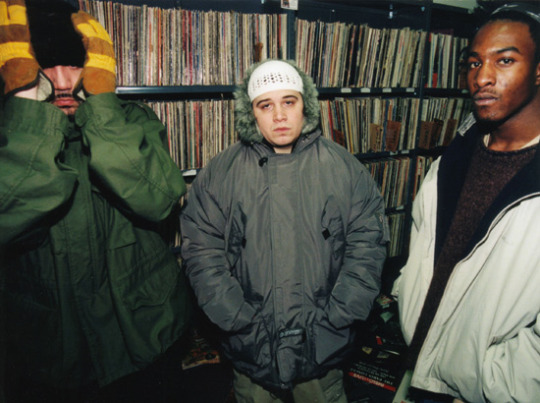
4. Jedi Mind Tricks
I’ll give you props if you know who these man are but they are legends. Point blank. Violent By Design will forever rank as one of the great group albums in hip-hop history. Vinny Paz, Jus Allah and producer/DJ Stoupe The Enemy of Mankind, gave hip-hop a shockwave they weren’t ready for, especially back in 1999.
Hip-hop as a business wasn’t ready to market a group, whose themes were rooted in topics like government control, military warfare, covert control tactics, religion and psychological warfare. To have all that in one bundle wasn’t something that big time A&R’s were ready for.
Had they started this group in 2010, they would have walked in to a business landscape that was far more suitable to who they were as an act and as MC’s.
Even with that JMT still enjoyed a lot of notoriety and they definitely succeeded in establishing their following, despite the odds.
While Violent By Design may serve as the magnum opus of their body of work, their run really starts in 1997 with the Psycho-Social, Biological & Electro-Magnetic Manipulation Of Human Kind.
Yes guy, that’s an album title. You gotta think now, I was in high school the first time I heard this and I was very into conspiracy theories and nonsense, so this album hit me right between the eyes. The idea that someone could use the medium of hip-hop in this way was crazy and the album would have been more than 10 years old when I first heard it.
No, the hip-hop historians among us will argue that Wu-Tang were a better and more influential group and I’d tend to agree, I can also bust back and say, “these dudes took Wu-Tang’s formula and gave it a whole different edge.”
I’ll break it to you like this, Wu-Tang gave the world swordsmanship and the first projectile weapons like bow and arrows, spears and the likes. Jedi Mind Tricks gave the world gun powder, advanced modern explosives and semi-automatics. You see what I mean?
Recommended Songs: Untitled, Retaliation Remix
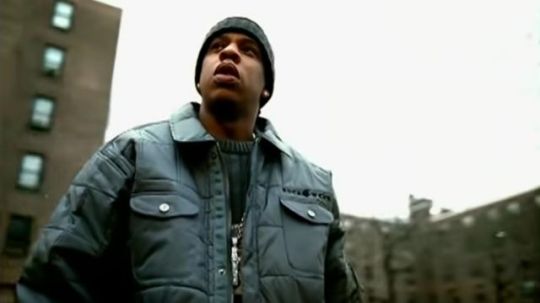
3. Jay-Z
No top rappers list is complete without my man. The only reason he ain’t higher is because, I rate a rapper more highly if they’re in the prime of their musical abilities. If this were an all-time list he’d be way way higher.
Beginning with Reasonable Doubt is really the only place to start when it comes to Jay. The production, the skits, the way every sentence was so tightly wound together, the word selection and sentence construction. It’s remembered as an album of hits because of tracks like “Cant Knock The Hustle”, ”Feelin It” and “Brooklyn’s Finest” but Reasonable Doubt was really defined by “Dead Presidents”, “D’evils”, “Politics As Usual” and “Can I Live”.
The first batch of songs gave the album some relatability, as far as depicting club vibes and nightlife glamour because that second batch of songs were all built on darker themes like betrayal, jealousy, greed, blind ambition and deception. That combination of themes as well as the production to match each one is why that album will always rank high among a certain listenership.
With that being said, never make the mistake of thinking Jay or any man is perfect. There’s like a 3 album run where there’s moments of dope-ness but not a truly complete album.
Still with that, songs like “Imaginary Player” and “Where I’m From” will rank among his best songs.
It’s only when you get to The Blueprint can you start to see Jay perfecting the art of crafting, whole, complete albums that bump from start to finish. The Blueprint was near perfection in this regard. “U Don’t Know”, “Heart Of The City” and “Momma Loves Me” will rank as his best efforts and yeah, I skipped a few.
The Black Album replicated the Blueprint’s listenability, while also dealing in topics that created an album that sounded very personal to Jay.
All told, the best parts of his catalogue are so strong that there is no denying his place on my list.
Recommended Songs: Dead Presidents, I Love The Dough
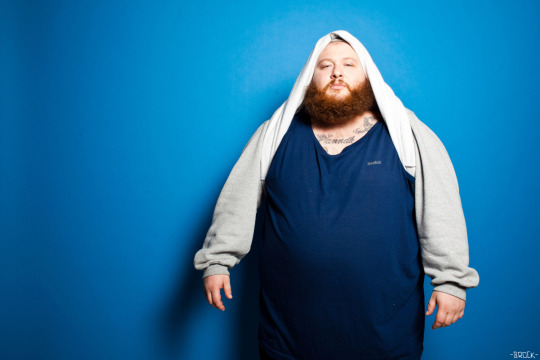
2. Action Bronson
I cannot for the life of me fathom how this man doesn’t get the love but the real ones know.
The mixtape download era (2010-2017 give or take), had many unlikely success stories. An overweight white guy, who grew up cooking in his parents deli/eatery, turned pro-chef then turned rapper, is beyond unlikely. Only the internet could allow this man to succeed and thank the hip-hop gods it did.
From 2012 to about 2018, Action was one of the only constants in my playlist. I still remember where I was the first time I heard “Brunch”. His catalogue starting with the Tommy Mas produced, Dr Lecter and boasting full collaborations albums along side Statik Selektah and the Alchemist, and of course the classic Blue Chips series. This man’s prime will be underrated.
If you’re going to take one chapter of Bronson’s art and study it, it’s going to be Blue Chips 1 and 2. Both are thematically perfect without ever trying to be. Which is what allowed Party Supplies to make production choices that grabbed you from the jump. From the first time you hit play on the opening of Blue Chips 1, you’re hit with the sound of falling shards of glass and a violin sound that makes the opening song un-skippable. The songs themes are also a perfect introduction to the man himself. Debauchery, expensive taste, hedonism, revelry, unabashed pleasure-seeking, drug use and just enough self-depreciation that you felt you were along for the ride rather than just a fly on the wall, turning your nose in disgust. It was a perfect mixtape, at a time when mixtapes were at a crazy dumb high standard.
It’s not so much that a rapper made punchlines about food, that would be an over-simplification and really missing the trick. It’s that he made everything he said sound like the dopest thing ever and the most underrated trick about his music is that he made grown man rap without needing to be thuggin’. A rare feat.
Bronson has since gone on to establish himself as a content creator/producer/food review guy but man, what he accomplished as a complete body of work is nothing short of astonishing.
Recommended Songs: Midget Cough, Bonzai
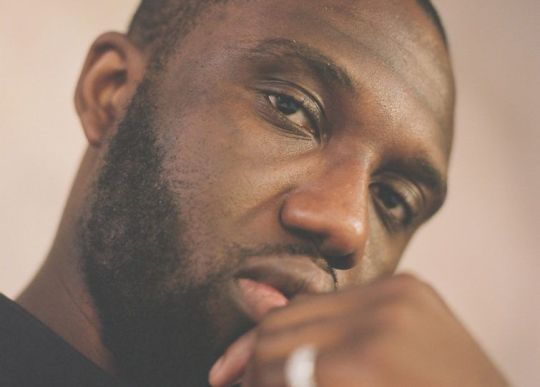
1. Headie One
So it’s late last year. I’m hanging with my boy Phil and Brown, we had just finished some content and Phil says “yo listen to this”. He proceeds to play Golden Boot and it hasn’t stopped bumping since.
A UK rapper with a lyrical nous and wit that rivals even legends like Jay-Z, but rapping over trap and drill beats. What Headie One is doing is not the norm and I’m talking in terms of his lyrics, sentence construction, word selection, metaphors, he does it all and like all the greats, he makes it look easy.
His collaboration with RV definitely helped mold him, with both the “Sticks and Stones” and “Drillers and Trappers” mixtapes giving you an idea of what Headie offers as a lyricist. He compliments RV’s brash, aggressive boasts with slightly less obvious but incredibly witty boasts of his own.
His discography though really starts to peak with 2018′s “The One”. That’s where Headie begins find a sweet spot between his lyrics, production and the themes of his songs. A mixtape like this can only exist via independent release because outside of the aforementioned “Golden Boot”, ain’t none of those songs getting any radio play especially in a country as “conservative” as England. Even in a genre saturated with gangsta/trap, “The One” stands out for what he accomplishes lyrically.
Headie would follow that by releasing “The One Two” in June of 2018 and he ascends even more in what he’s able to accomplish with the words.
The track “Banter On Me” should be in an all-time list somewhere for being the wittiest track of all time. The song is literally just Headie finding new and innovative ways to boast, call out and bait his foes. Hip-hop/Rap has plenty of beef songs that weren’t really direct call outs to any known public figure but were still definitely taking shots at someone. 50 cent’s “Wanksta” and “Officer Down” are some examples of such songs I can think of. Those did not really have the kind of wit Headie displays here. The constant streams of alliterations, double meanings, puns, metaphors, inferences and innuendos is just astonishing. There’s a real mastery of language at play here. The song is a lesson in language, no textbooks.
Headie has since released his debut album along with additional tracks for the delux version of the album. His debut studio release “Edna” does what studio releases are supposed to do. “Parle-Vouz Anglais” and “Aint It Different” will standout and are difinitely the most palatable songs as far as radio play. Those are the 2 songs I’d play for first time listeners.
Recommended Songs: Hard To Believe, Dues, Zodiac
11 notes
·
View notes
Note
(1/2) Honestly, Hilary, you are a blessing. I want to scream about your amazing Fic, how I love Immortal Husbands and the whole Immortal Family and how I had more fun learning history from your writing than in my whole damn school. But I also want to appreciate your TOG answers and meta. All the more because my friends outside the internet saw TOG as some boring movie with shitty plot and I'm just here in the corner, wanting to scream at someone who will understand about FINALLY seeing...
"(2/2) ...some GOOD queer representation, without throwing stereotypes in our faces, and I can't even begin with the found family trope because THE FEELS. Anyway, what I was trying to say with this rambling: thank you. <3"
....I’m sorry what. Who. Who is saying this. Straight people? I feel like the answer is definitely straight people. Because they have had EIGHTY FUCKING THOUSAND shitty action movies with the Boring White Man Hero, the disposable Muslim-coded (or actually Muslim) villains, the equally disposable eye-candy female love interest who either gets fridged or is secretly evil, Grimdark Everyone Is Secretly Bad And Nothing Matters crap philosophy, Moral Hand Wringing Over Superhero Violence, on and on. So of course they can moan and whine about “iT’s nOt OrIGinAL” and apparently not sufficiently Grimdark and Amoral, and how the dynamics of the team are completely reshuffled in a way that actually doesn’t prioritize THEM, and like.... this is why I never trust media only beloved by straight people, and only ever watch anything after it’s been recommended to me by a trusted queer friend. Because sometimes I remember the difference, and WHOOF.
Because: the gays and people of color DESERVE formulaic action/superhero movies as much as the Generic White Bro (in fact, we can all agree, far more than the Generic White Bro). This is the trap where every piece of media that’s not made by a Mediocre White Man has to be the best all-time of its genre, apparently, rather than using some of the same well-loved storytelling tropes but recoding them and re-deploying them for a more diverse audience. Instead of the Hard Bitten White Man Action Hero, we have Andy and Nile (two women, and Nile as a young Black woman who literally cannot be shot to death, in the year 2020, is fucking revolutionary on its own don’t @ me). As I said in my first meta, even Booker, who comes closest to fulfilling that trope, is made the closest thing to a “villain” there is on the team and even then for entirely sympathetic motives that rest on him having teary-eyed conversations with Nile about how he misses his family and feels like he failed them. His emotions help drive the story in an actually GOOD and useful way, rather than sacrificing everyone else to coddle him through his feeble heterosexual manchildness (why yes, I AM staring directly at the Abomination without blinking). Nobody in the story is EVER penalized or made a fool of for loving their found family (itself an intensely queer trope, even before the queerness of the individual characters) or trying to do the right thing even in the middle of the horrors, and frankly, I just want to consume more media with that as the main message. I’M SO FREAKING TIRED OF GRIMDARK. GOD. IF I WANTED THAT I COULD JUST TURN ON THE NEWS.
And of course, my BELOVED Joe and Nicky: an interracial, interreligious gay couple that has been wildly in love for literal CENTURIES and gives me the opportunity to do things like write the most self-indulgent historical romance backstory fic ever with DVLA. They met in the embodiment of religious conflict and have transcended that, there are never any cruel jokes or expectation for you to congratulate the narrative for being so beneficent as to give you “an exclusively gay moment” (fuck you Disney!). Joe and Nicky’s love story is central both to who they are as characters, doesn’t revolve around them being suffering or being Tormented over being gay (when the cops pull them apart for kissing, they beat the cops the fuck up, WE STAN), gets to unfold naturally in the background of the story with these beautiful little beats of casual intimacy (the SPOONING /clutches heart) and since THEY LITERALLY CANNOT DIE, no chance of the “burying your gays” bullshit. Even when they’re captured first by the bad guys, and I briefly, upon first viewing, worried that they were going the Gay Pain route just for cheap emotional points, they remain constantly united and fighting together and able to do stupid things like flirt when they’re strapped to gurneys by a mad scientist. Then the rest of the team ends up right there with them, so it’s not something that happens to them alone, and Nile comes in to save everyone’s asses, and Joe and Nicky get ANOTHER beautiful moment of fighting the bad guys and being worried about each other and tender even in the middle of this chaos and GOD! MY HEART! MY WHOLE ASS HEART! I LOVE THEM!
And just the fact that it’s not the Evul Mooslim Turrorists or Boilerplate Scary Eastern Europeans or whoever else who are the bad guys, but Big Pharma, nasty white men with too much money and not enough ethics, the CIA (at least tangentially; they could have pushed a lot harder on that but I’ll give Copley individually a pass), and the very forces that want to stop the Old Guard and discount what they do (helping the little people) as worthless... GOD. That is fucking POWERFUL. They literally take the time to explain with Copley’s Conspiracy Wall that even the little things the team does, when they can’t see it themselves, spiral out through centuries and have positive effects down the line. And it’s NOT just in the Western world (no scene in the movie takes place in America, none of the main four characters/heroes are American, and they only go to England when the English villains capture them). They’re in Africa, in Asia, in South America, in all these places where the Western/imperial world order has harmed people the most and in a way that Euro/American audience often gets to forget. On the surface this might be an action movie with Charlize Theron beating up men (which I mean, that alone is fine if you ask me) but there are SO MANY WAYS in which it achieves these deeper moments of meaning and subversion of the narrative that we are so often fed and the ways it could have done this (i.e. the same old Mediocre White Man ways).
I love the fact that the team unabashedly LOVES each other as their family members (I will never get over them all liking to sleep in one room even in their safe house in France), even when they struggle, and that they continue trying to make it right and never consider leaving Booker behind, because he screwed up but they still love him (and he them). I LOVE LOVE LOVE that this movie gave me not just Joe and Nicky but Andy and Quynh: two completely badass queer couples who kick tons of ass and have romance and Drama and rich and well-realized lives outside being used as emotional manipulation or suffering porn for straight people. (I realise it’s only been two weeks since the first one released, but where is my sequel, I have Needs. Especially Andy/Quynh and Quynh/Joe/Nicky needs). I was disappointed that they’d gotten rid of Quynh in a Bad Medieval Way to cause pain for Andy and then shocked and DELIGHTED when she turned up alive in Booker’s apartment at the end of the film. I LOVE that this movie gave me Nile Freeman and everything that she represents in the middle of this hellish year. I even love Booker! BOOKER! When he’s usually the character type I can’t stand and have the least patience with!
So yes. I have watched it three times already. I am sure I am going to watch it several times more. It just makes me so happy.
99 notes
·
View notes
Text
Five* Outside albums of 2020
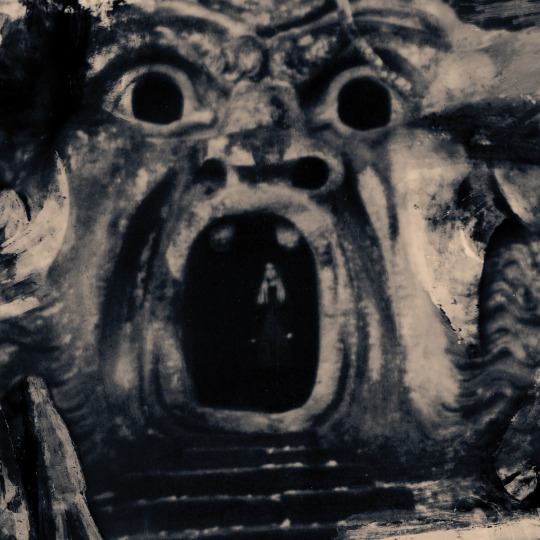
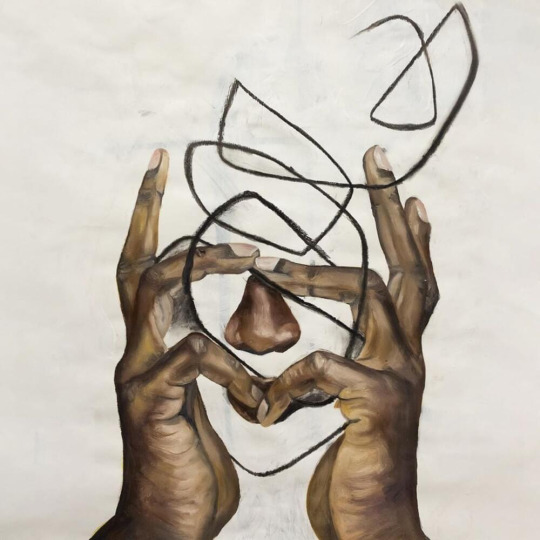

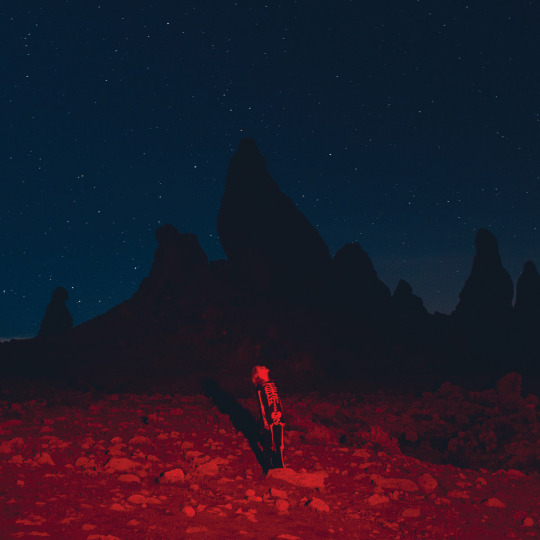
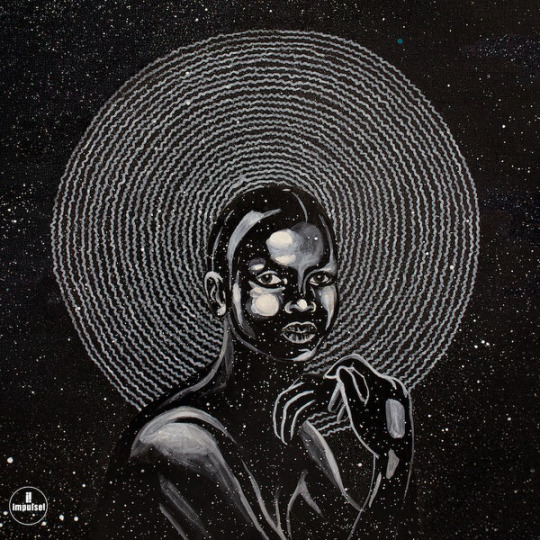
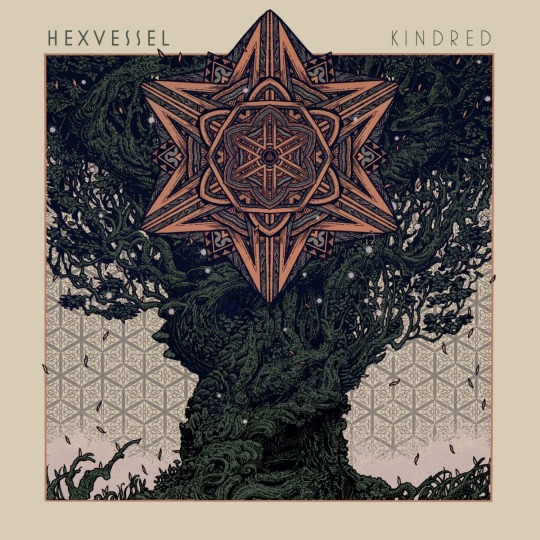
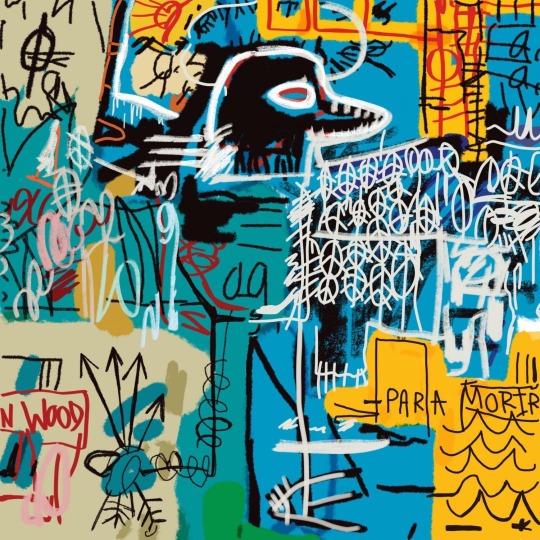
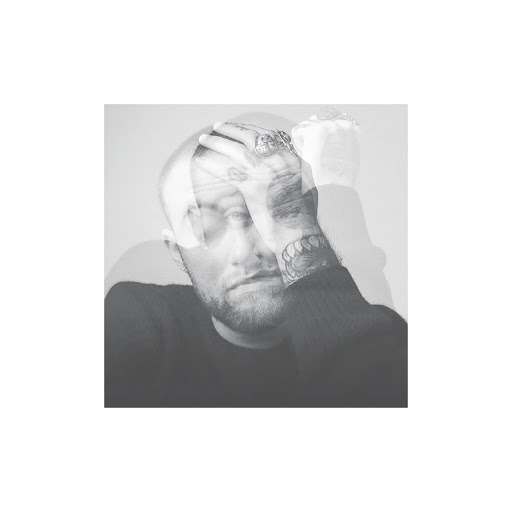
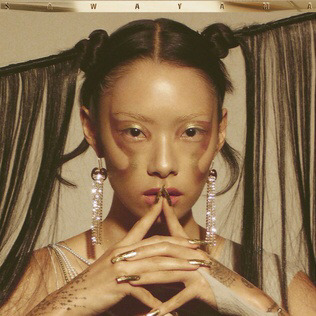

I do this little list every year of my favorite albums that fall mostly “outside” the metal sphere and weren’t so metal-adjacent that I reviewed them formally during the year. The past three times I have written this little piece, I have kept it to five, but *this year, I’ve just had a hard time narrowing it down, so I figured, why do that? Well, I could go through a few dozen albums or so that I fucked with this year outside the metal sphere, but I’m compromising with the addition of a new, quick (we’ll see) honorable mention section.
So, in the interest of keeping my verbose tendencies in check, I’ll cut this introduction off and get into the honorable mentions.
Honorable Mentions:
Anna von Hausswolff - All Thoughts Fly
I did review Anna von Hausswolff’s previous record, Dead Magic, back in 2018 as part of my bunch of metal albums reviews that year, because it was kind of tangentially metallic. It wasn’t a lot at a technical level, only a few metallic elements here no there, but it had a lot of harrowing qualities that I thought metal listeners might appreciate. For the Swedish singer and pipe-organist, that album really was the closest she ever came to metal’s territory, and I don’t think any flirting with the genre was intentional on her part. Most of what she does is haunting, neoclassical, organ-based music that’s usually not as wild as what Dead Magic was, and this year’s album is a real scale back to her roots and an appreciation for the pipe organ. While I do miss her bewitching vocals on this entirely instrumental album, All Thoughts Fly stands well on its own merits as both a solid tribute to von Hausswolff’s organ playing and as a beautiful, incredibly immersive ambient album that does so much with its relatively small palette. I’ve talked a few times on here about really shitty ambient music that’s approached with a clearly lazy attitude because of its supposed background role. Rather than being made to be ignored, All Thoughts Fly pulls you in and around in a swirl of lush sounds that aren’t too common in ambient music, and with a relatively minimal approach, relying on the naturally serene tambre of the instrument to fill the space with a lightening, floating ambience and well-structured movements to do the gentle moving. It’s a beautiful example of what an ambient album can achieve if it’s actually made with a lot of love and care.
Shabaka & The Ancestors - We Are Sent Here by History
Okay, that first one went pretty long. I’ll try to keep the rest of these here relatively short. Sons of Kemet band leader, Shabaka Hutchings, takes his other group on slightly less chaotic Afro-jazz odessey that what Sons of Kemet have been delivering us. While more contained on the surface within the genre’s usual light grey areas, Shabaka & The Ancestors move with freedom and flexibility on this album in a way that highlights the natural appeals of the Afro-jazz sound pallet through constantly engaging arrangements from masters of the craft.
Lady Gaga - Chromatica
I know we’re all well aware of Lady Gaga, but the pop icon has been relatively quietly been making the best music of her career since taking the edge rather than the center of the spotlight, from 2013’s diverse Artpop to 2016’s more bare-bones Joanne. And now, after her mellower, more traditional Americana-influenced album in 2016, Gaga cranks the volume and the fun way back up. Chromatica is a blast of an album whose wide span of dance pop albums influences new and old keeps it varied and lively all the way through. This album feels very much like it’s Gaga unleashed, just doing her thing and having a good time with a bunch of dance music styles that she’s always loved, and it’s impossible not to feel that enthusiasm secondhand, and groove the hell out along with it.
Black Thought - Streams of Thought, Vol. 3: Cane & Abel
Black Thought has had nothing to prove since the relative inactivity of The Roots this past decade, but he has sure been rapping as if he does have something to prove on his solo work. The Philadelphia rapper put out a couple of EPs back in 2018 that showcased his impressive modern lyricism and flow, and the third, LP-sized installment in the series is just another offering of further proof of the man’s lyrical chops. There’s a little bit of an understated delivery in the music overall, but Black Thought really lets his words speak for themselves more than his moderate bravado. It’s not super flashy because it doesn’t need to be.
Phoebe Bridgers - Punisher
Indie folk has always loved to soak in the puddles of personal sadness, but Californian singer Phoebe Bridgers takes the style to whole new depths of personally gripping, bordering on the outright emo, and that is by all means a compliment for rather than a shot at. The album’s candid journaling of Bridgers’ personal struggles is so tangible and so genuine that it would probably rival Connor Oberst’s best work with Bright Eyes. It is just a beautiful, yet tear-inducing album.
Alright, now on to the five “main” “non-metal” albums of the “list proper”.
Hexvessel - Kindred
Hexvessel are a Finnish six-piece whose sixth album of psychedelic folk here manages to touch on the same haunting, gothic tones that groups like Opeth and Gazpacho do at their most forest-y. Indeed, Kindred is an enchanting album, with sprawling styles and a full-bodied sonic pallet to keep it interesting the whole way through. And it’s as strong in its more bombastic song like that which opens the album as it is in its more stripped back acoustic tracks like that which closes it. Songs like “Magical and Damned” straight-up evoke Mount Eerie, while songs like “Kindred Moon” hearken to The Beatles at their most minimal and folky, and there’s plenty of spooky, mystical energy to go around. Definitely one of the best finds of the year for me.
The Strokes - The New Abnormal
Coming at the end of a seven-year gap between it and their previous album, 2013’s somewhat fan-polarizing Comedown Machine (which I liked a lot), The Strokes’ aptly named return is a return to the spotlight, but hardly to normalcy or the musical roots in garage rock that so many of the band’s fans have been sweating for. Twisting the electronic alternative rock of their Angles era into some odd, but mesmerizing forms, The New Abnormal is a subtly wild ride of an album through lots of melancholic overtones and undertones whose impact is made all the more potent by the occasional teasing of sorts with the few more traditionally rockin’ moments on here. It doesn’t take long to pull back the seemingly preppy synth rock or 80’s rock curtains to find the melancholy beneath “Brooklyn Bridge to Chorus” and “Bad Decisions”, respectively. But the band aren’t even that subtle with the immediate depression of just the straight-up guitar melodies on songs like “Selfless”, “Not the Same Anymore”, and the chill-inducing soar of “Ode to the Mets”. The album’s prize piece, though, has to be the utterly gorgeous and empathetic minimalist synth song, “At the Door”, whose simple melodies and bare delivery make for one of the most gently heart-piercing songs I know and of my favorite songs of the year and probably my favorite Strokes song ever, as hard as it is to listen to. Welcome back Julien and company.
Rina Sawayama - Sawayama
Quite possibly the best outright pop album I have heard in a long while, Sawayama sounds simultaneously fresh and vintage in the landscape it was born into, making use of a lot of early 2000’s pop rock instrumentation, even some heavy metal guitars here and there, but most importantly, a real sense of passion that seems to be flat-out absent from so much of the pop that I (usually inadvertently) hear. I don’t want to overstate the prominence of the metal elements, but the album does have a bubbling, infectious energy both vocally and instrumentally from front to back that the occasional bursts of heavy guitars between Sawayama’s charismatic, dance-inducing performances do provide a good snapshot of. Furthermore, there’s a rich diversity of song types across the album that dive into the pop sphere beyond the standard trend-hopping that dominates streaming playlists and make for a dynamic and fun, rather than disjointed, pop album. And that’s all only possible with the consistently tight compositions o the album. Indeed, this is one of the best pop albums I have ever heard, certainly in recent years.
clipping. - Visions of Bodies Being Burned
clipping. are the second artist to be on here two years in a row after last year’s spectacularly spooky There Existed an Addiction to Blood, and Denzel Curry’s one-two punch of TA13OO and Zuu in 2018 and 2019 respectively. There Existed an Addiction to Blood was a thrilling and fresh take on many tropes of horrorcore with the band’s already forward-thinking and creative noise-driven instrumental production guiding harrowing stories of femme fatales and street violence in a more modern setting that often flipped the script on victims and perpetrators, as well as settings themselves. Visions of Bodies Being Burned is quite literally a continuing sequel to that explosive album, also released in time for Halloween this year; the material was recorded in the same sessions as the previous album and in the same unique vein. Consequently, there’s not really a whole lot I can say about this album in contrast with the last without getting way too in-depth and spoiling the fun. Whereas MC Daveed Diggs’ hooks were one of the biggest strong points of last year’s album, the creatively noisy production is the big star on this album. The fans seem to be leaning a bit more toward this year’s release, but I think I’m still a little partial to There Existed an Addiction to Blood. Nevertheless, Visions of Bodies Being Burned is a blood-pumping follow-up not to be missed.
Mac Miller - Circles
The posthumous release from Pennsylvanian rapper Mac Miller captures the man at his most chill and contemplative. The album is more of a minimalist ambient singer-songwriter sort of album than hip hop and its serene atmosphere becomes kind of inadvertently tragic in the posthumous context, but it serves as a beautiful swan song for the creative rapper whose struggles with addiction sadly prevented him from being able to bask in the deserved wide appreciation of his sixth album. Circles is a soulful, bittersweet cap to Mac Miller’s legacy that I think anyone will be able to feel the love and raw humanness of.
#Black Thought#Streams of Thought#Streams of Thought Vol 3#Anna Von Hausswolff#All Thoughts Fly#The Strokes#The New Abnormal#Hexvessel#Kindred#Rina Sawayama#Sawayama#Phoebe Bridgers#Punisher#Lady Gaga#Chromatica#Shabaka and the Ancestors#We Are Sent Here by History
22 notes
·
View notes
Text
Meet Rhys Rich, the New Zealand Artist With an Infectious and Soothing Sound [Q&A]
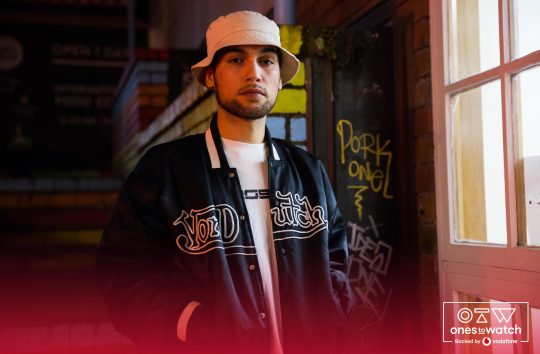
Connor Henare Dion Rhys Richard, more commonly known as Rhys Rich, is the definition of a self-made artist, making his mark in the music scene one track at a time. Starting in Australia before moving to New Zealand, Rhys Rich has garnered traction through tracks like “Family of Solace,” “Red Rover,” and more recently, “No Confetti.”
It’s a world bursting with colour, passion, tones, and synths, and Rhys doesn’t shy away from experimenting with new sounds, taking inspiration from artists as diverse as Swedish House Mafia and Tyler, the Creator. Listening to his tracks, his sound is a blend of soothing beats with punchy, yet syncopated accents heard in his raps, seamlessly tied together by baselines inspired by contemporary R&B and hip-hop.
We caught up with Rhys to investigate who he really is. Alongside a live performance from MEOW in New Zealand, we take a closer look at his earlier days, how he ended up in the music industry, his time in lockdown, and teased out a glimpse of his future works.
youtube
Ones to Watch: So first off, introduce yourself. Tell us who you are and what you are about?
Rhys Rich: Yeah so, my name is Rhys Rich, well my real name is Connor. The name Rhys Rich comes from my middle name, “Henare Dion Rhys Richard,” I stole it from myself, I guess. I grew up in Kalgoorlie, Western Australia and moved to New Zealand when I was sixteen years old. I’ve been in Wellington for the past four years and that’s kind of where Rhys Rich was born and developed his music career. Other than that, I’m working full-time outside of music, but I’m trying to change that.
What is the history behind your character and how did you get into music?
Well, I was kind of a sports fanatic when I was a lot younger up until I was about thirteen when I broke my ankle, which put me out of sport for a couple of years. I started making EDM when I was in Australia, because rap was pretty much just Hilltop Hoods and 360—you know stuff like that.
It was only when I moved to New Zealand and was shut off from most things when living with my grandparents. I didn’t know anyone and a new school, so I stayed home a lot and just started singing and rapping. Funny thing is I couldn’t [sing and rap] at first. You know, having a microphone and some headphones you kind of feel what you like about yourself and what you don’t, which eventually grew into what it is now.
So true, I think it’s a matter of whether you’re willing to learn.
Oh yeah 100%. Every time someone would come up to me saying “OMG I wish I could sing like that,” I just think, you literally can hahaha.
How about your music in general. How would you describe your sound?
It’s a blend of everything. I don’t consider genres too much when I’m creating. But when I’m making a song, it’s completely inspired by not only real-life situations but designs I like, experiences I’ve had, and conversations I’ve had. I’m not restricted to the point where I’m like “I’m trying to make a R&B song.” I do think, which I say a lot, love songs are the easiest thing to work with and especially having a partner I love makes it a lot easier
So out of your whole discography, which song represents you the best? Where should someone who doesn’t know Rhys Rich start?
I would probably say “Red Rover.” That would be the one that represents me the best because it kind of sounds like a very complex song but it’s literally about my girlfriend working and I’m just waiting for her to get home hahaha. It’s so simple, but I just made it sound so complicated.
What do you love about creating music?
I think when I was younger it was just an outlet to feel achievement and motivated to do something. Though, now that I’ve grown older it’s more of a career and not a hobby, I think that the main thing for me is working with artists and helping artists as well, which is something I’m getting into. Developing artists who don’t have a producer or don’t have anyone to write for them, is so cool. Especially being able to work on not just Rhys Rich but work on other artists
Yeah, you’re going along with them on this career journey, and you understand how they feel.
Yeah! Especially like, I’m still so hungry, so seeing the younger artists say yes to studio sessions or working together, like I know exactly what they’re feeling since I still have it.
Did lockdown affect anything? Did it challenge you or was it a blessing in disguise?
Well, it was a bit of both. The first lockdown [in New Zealand] I was kind of confused, but I made a couple songs. But besides that, I kind of got a little lost in and just didn’t know where I stood in terms of music, work, and everything like that. I kind of felt like I was prepared for [New Zealand’s second] lockdown even though it was unexpected. As soon as it happened, I thought “Yes! Yeah.”
What is your formula to putting on a good show?
Oh, that’s a good one! I mean I wasn’t always good at it; you know in 2016 I was a nervous wreck. As of lately, I’ve been given a lot of tips from industry professionals for my performances but a lot of it feels uncomfortable to do what they suggest. I’ve battered down shows in the last few years and that’s kind of helped me to feel like everyone can perform or stand on the stage, you just need to be confident.
It’s more so, I’m on the stage and there’s people down there, but I don’t want them to feel any different from me. So yeah, for example, if I know someone in the crowd, I’ll joke with them. You know simple shit to keep the crowd going.
Who has influenced you in your music career and what would you say to them right now if you were face to face?
Since I was 13-14, I saw Odd Future and Tyler, the Creator and how he’s grown from that. I think it’s self-explanatory and the whole world knows that he does everything himself, from his own festivals, his own label, clothes, pretty much everything.
Independence is something I learnt that along the way, especially from him. I mean I’ve been approached by labels and things would start off smooth, but sometimes it would feel wrong. Which I think is because of Tyler’s influence, where it’s like if he can do it man, then I can fucking do it!
What are you up to right now musically?
I can say that I’m putting out two projects—a single soon and something very, well hopefully, big after that. So, yeah hahaha.
What’s your favourite lyric you have written?
I say this a lot but it’s “Take a breath, be in tune, you were air, and I was fumes” from “London Eye” which is coming out sometime.
Do you have a dream collaboration?
Any Dreamville artists. It’s the one label I think I would sign to as well.
Anything else you want to say or let us know?
After a long time, I’ve gone through a lot of mishaps in the industry in terms of almost getting support and not feeling comfortable. So, for the audience who have been listening, I feel horrible since I haven’t been putting out anything this year. But that’s all going to change before the end of the year. Going to be a lot of music out and have a lot of shows and festivals lined up as well, so I’m excited for that. It’s only up from here!
1 note
·
View note
Text
Cultural Appropriation among East Asian Popular Culture
*I am aware that amidst the rise of AAPI hate crimes, this is a very sensitive time to be talking about this. However, I think it is very important for East Asians (in my case, a Chinese immigrant living in the States) to address our own ignorance and avoidance on this issue in order to have solidarity with other BIPOC communities. My emphasis is on the media portrayal of cultural appropriation and how that could be potentially damaging, I do not intend to imply that cultural appropriation is prominent among all East Asians.*
If you are a frequent consumer of East Asian pop culture, you would be lying to say you haven’t seen an idol or a celebrity wearing dreads on camera. Sometimes they do so to create a streetwear look, sometimes they do so to deliberately play a character. We also tend to turn a blind eye to the countless bad rapping performances and the occasional half-joking bits about tribal, native cultures. As of now, many fans tend to defend their favs by calling these instances as acts of negligence, that none of these celebrities had an intent to harm; but how much longer, and farther, should we tolerate cultural appropriation in East Asian pop culture?
East Asian popular culture has become part of the global mainstream in recent years. With the help of social media and the supplemental supports from local governments (think South Korea), today’s cultural flow go in both directions: while Asian pop culture is often inspired by Western elements, East Asian media production is now the new leading force of culture.
One “neutral” definition of cultural appropriation could be summarized as the representation of cultural practices or experiences and the distinctive artistic styles of the particular culture used by nonmembers. However, misrepresentation, misunderstanding and manipulation of culture is frequent and damaging to many marginalized, underrepresented groups.
Appropriating Hip-hop
Even though there is a “neutral” definition of cultural appropriation, there is no neutral way to appropriate a culture. The moment you partake in a cultural practice that is not your own, you are marking it with your own social marker. Just to give an example, the rise of Gangsta Rap was in response to the mass incarceration of Black people during the War on Drugs era. The history of rap and hip-hop, as a whole, is tightly connected to Black lives in America.
So why is Asian rap so filled with flexing culture? The answer is simple. The rise of hip hop and rap in the East Asian music scene is a simple copy-and-paste of the Western pop chart. Hip-hop has become the best selling genre, yet it’s important to note that today’s hip-hop has taken a detour away from its root. Hip-hop and rap has been rendered with pop sounds, often rendered with the voices of white performers as well.
The idol factories in both South Korea and China had picked up the trend. Hip-hop and rap is what gets the cash, so that’s where the executives want to take their trainees. Shows like The Rap of China(这就是说唱), Rap for Youth(说唱新时代), received enormous popularity in the last few years among young Chinese people. While the popularization of these shows can help nurture more diversifying music tastes beyond the typical Chinese pop music, they portray rap and hip hop in a highly inaccurate fashion. The flows and forms featured in performances felt unilateral, often with a strong emphasis on flexin’ solely for the sake of flexin’. In addition, in no way did any of these shows serve to educate music lovers on the history and background of hip hop and rap.
https://www.youtube.com/watch?v=5hIJnBh7Dv8
P.s. this video features Rich Brian, I think it goes without saying that he’s probably not the best person to be educating Chinese youth on rapping.
Appropriating Black Hairstyles
Some contestants of these hip-hop shows also wore appropriated versions of Black hairstyles, and it wouldn’t be far fetched for me to say that the increased popularity of dreads among Kpop idols had kicked off this trend. Some of these celebrities are people who I have immense respects for, such as Jackson Wang. As the Chinese member of the Kpop boy group GOT7, he was the only Chinese celebrity (that I’m aware of) who spoke up for the BLM protests openly on his social media (I should note that he received quite a lot of backlashes for “defending violence”). But he—as I found out—refused to apologize when being criticized for wearing dreads back in 2016. He was called out in 2016 for wearing dreadlocks in a Pepsi commercial. He claimed that he did not intend to be racist. However, his fans questioned his response, as his defense did not acknowledge the history of dreadlocks.
More recently, BTS’s J-Hope was also called out for his hairstyle in his first solo single, “Chicken Noodle Soup.” Not only was his hair called out to be tiptoeing the line of cultural appropriation, it also felt odd that he only switched to the dreadlock-looking hairstyle during the nighttime break-dancing scene in the music video. While this might not have any further implications intended by the artist himself, this is an example of how infiltrating the unprofessional, gang-affiliated stereotypes surrounding dreadlocks could be.
Part of me thinks they are doing this to please white people, I could easily be right. White people are interested in hip-hop but can’t go as far as getting interested in Black culture? Sure, we Asians will provide. I sound harsh but that’s truly how I see the logic behind Asian pop stars appropriating Black culture. It’s true that many from the K-pop industry do not have full authority to their own identity, but I simply do not get the extent of appropriation employed in the K-pop scene—and this sabotaging trend is spreading in a scary rate to both Japan and China.
Reality TV in China features mostly celebrities, but I assume the goal of the government (for producing all these shows) is to achieve some sort of relatability through portraying famous people doing normal things. Again, just like how Western culture and East Asian culture influence each other, creating a feedback loop, an echo chamber of what’s socially acceptable and what’s not, famous people and normal people alike are all capable of influencing the social norms of Asia. We in America indulge in drama, the unethical wrongdoings of distant rich people. It’s not like that in Asia. People look up to celebrities. So if someone in Blackpink decided to wear braids in their newest music video, you’re bound to see kids trying to do the same.
Internalized Colorism
Sure, one can argue that it’s all negligence and ignorance, but we can not pretend the acts of cultural appropriation are not a result of internalized colorism. Blatant racism is less likely to occur in East Asian societies since they tend to have a less diverse ethnic makeup, but internalized colorism has always been an underlying problem in East Asia. Take China as an example, being “light skin” (though the direct translation of the Chinese word “白” is equivalent to “white,” the phrase is usually perceived as “light skin”) is generally viewed as elegant, pretty, or decent. Phrases such as “yellow skin,” “black skin” have risen to popularity in recent years as internet slangs used by online participants to criticize celebrities or themselves. People strive to be as “white” as possible by setting a societal expectation for public figures to follow, creating this social discourse chamber that deems the white skintone to be superior.
Even more recently, the phrase “非酋” (direct translation: “African tribe leader”) is used as a metaphor for people who tend to have very bad luck and never get what they wish for. From the perspective of an outsider, not only is this phrase obviously racist, it is also more dangerous in the sense that the metaphor entails a long line of other language-specific words that imply racially-charged stereotypes that could not be easily understood by non-Chinese. The phrase itself, however, is often used lightly by gamers--since this is actually an official phrase that ties to certain characters in certain games--and other young internet users to ironically joke about themselves without really considering the racist undertones of the phrase. Therefore, while using the phrase itself does not necessarily make one racist, it certainly reveals ignorance of the Chinese society on the issue of race.
Online Community, Bullet Comments and Echo Chamber
A single character in Japanese/Chinese tends to carry a lot more information than a single letter. As a result, there could easily be more combinations of words with the same characters in comparison to the alphabet for Roman languages. With the rise of fan-fueled, fan-made, fan-moderated video/social platforms like Bilibili (Chinese) and Niconico (Japanese), internet slangs are becoming increasingly niche. However, “niche” is defined against the traditional sense here. Slangs are only “niche” in the sense that the context is only known to a very specific audience, perhaps a fandom of a game or a show, but this audience itself could be enormous--certainly in the case of China. In these separate but internally united communities, people communicate in slangs that are culturally specific among themselves. How, you may ask? Through the persistence and permanence of bullet comments.
Up till this point, bullet comments are popular only and specifically to Japanese and Chinese cultures, again, a likely result of the linguistic natures of the languages. The chaotic, seemingly-never ending feature of bullet comments is an easy tool to nurture a sense of tight-knitted community for young internet users. Teens no longer need to worry about parents’ attempts to understand youth culture--most adults literally can not bear with the overwhelming screen of repetitive slangs. Bullet comments granted a new sense of freedom that previous generations of Japanese and Chinese youth did not experience.
However, it also means that bullet comments could create the perfect scenario for a social echo chamber. It’s hard for outsiders to penetrate the existing banters among a community that talks in their own lingos, and it also encourages the repetitiveness of the same idea, same belief. But this is not a characteristic specific to bullet comments or online communities in East Asia, this is a characteristic common among many East Asian cultures. In comparison to Western cultures, East Asians are way more comfortable, even dependent on group mentality and general consensus. Relatability is often prioritized over individuality on the internet scape, which on its own isn’t necessarily an issue; but this nature of East Asian online community certainly makes it a particularly weak target to colorist beliefs and culturally-insensitive content.
The reliant tendency on echo chamber and group mentality of East Asian communities makes them vulnerable targets of certain Western influences, including cultural appropriation and internalized colorism. In the case of China, its government literally banks on unity among its citizens to establish more extensive social control in order to rule. In both Korea and Japan, unity and group mentality are strongly encouraged and embraced as well. Ultimately, while the problem of cultural appropriation is becoming increasingly worrying among pop culture in East Asia, this is a foreign concept and problem for East Asians who might be helping the spread of cultural appropriation. Regardless, education on the subject matter is necessary and we need to start addressing the problem now.
6 notes
·
View notes
Text
Australia's reggae revolution
Reggae is one of the main genres of Australia’s modern music scene, but how did a Jamaican style of music become part of a culture on the other side of the globe? During the 70`s and 80`s reggae became increasingly popular in Australian streets, and it merged with other genres giving birth to a new exciting style of playing. Australia’s culture and politics is the main factor to these movements and has created a positive environment to reggae’s renaissance.
Firstly Australia has always been well known as a multicultural country with intense immigration policies and benefits for foreigners, consequently this has led to a country full of different cultures and ethnicities. Throughout history this has always been present, in 1928 a poster was made saying “the southern cross; the stars which shine over Australia the land of opportunity; The call of the stars to British men & women”, or their human rights department which says “This rich, cultural diversity is one of our greatest strengths. It is central to our national identity.” Even with all immigratory waves and countless incentives indigenous people are still very present in their culture, with a huge impact in sports, music, holidays, etc. This has everything to do with the big effervescent mix of culture that, as a country, Australia is.
Multiculturalism of course affects culture, but how? There are numerous examples of this phenomenon, one of them might be the accent spoken by “aussies”. It is unique and is a mix of British accent with native expressions and ways of pronouncing words, this has created a whole new way of speaking English. This also happens in music, where for example, reggae has merged with local rhythms and different country musical rhythms, creating a distinct and modern variation of reggae. For instance, the indigenous reggae band Mantaka are a great example of this, the lead singer was a grandson of Indigenous people people.He found out about reggae on a contact with the hippies that migrated to the southern part of the country, he also instantly related to the lyrics about oppression and suffering as well as with the involving rhythm. You can hear one of their masterpieces on this link: https://youtu.be/O8nRfBzJlDs.
This multicultural environment creates generally good consequences to society.Bands like Stick Fingers are part of a new Australian reggae movement, and represent that in a genius way on a song called “Australian Streat” for example the reality of young Australians, that desire to go back to the past, and the struggle to stop reminiscing about the past. Those movements represent the youth and are a big deal when it comes to political representation and overall wellness of a country, as art, in this case music, is a big stage to show pain, suffering and other feelings of a group of people. Only when Brazil's government invests in these policies can we get good consequences like Australia.
To sum up, this new and fun style of play has derived mainly from incentives from the government on culture, immigration and multiculturalism. The young and exciting reggae movement in Australia is a symptom of years of different cultures and ethnicities getting together.
0 notes
Text
Myself as a writer and Death of the Author
I’m trying to write a novel, and it’s really hard. I feel like I’m not getting anywhere, I’m on my fifth draft and trying to create a lengthy enough narrative that doesn’t feel like filler. It is difficult, to say the least, and I really admire people with the ability to write quickly and well.
But there’s a lot about She-Who-Must-Not-Be-Named going around again, and it made me think. We all know that she’s not the best person, but she is a writer, and she is a creator, and her works are widespread. And that... causes problems.
Is it ok to consume her work? How much do her opinions reflect in her work, and can we spot it? I have no idea, but here’s my best shot, as an aspiring writer and a high-school literature student.
Please be warned I have no experience, and I’m kind of making this up as I go along, but here we go.
Last year, at the start of the school year, in Literature, my class watched Midnight in Paris. The movie was written and directed by Woody Allen, who is... well-known for all the wrong reasons, namely allegedly assulting seven-year-old Dylan Farrow. One of the girls in my class pointed out this fact, and my teacher nodded and said that we were discussing Death of the Author.
Death of the Author is an interesting topic. It holds that an author’s intentions and background should have no impact on interpreting a text. It is interesting, and it is really bloody hard to do.
Keep in mind that if you pick up a book by a relatively famous author, you will know something about them. If you take Mrs Dalloway, for example, if you’ve ever heard of Virginia Woolf, you will doubtless know that she was a writer and that she committed suicide, even if you know nothing else. The fact that she did commit suicide will influence the way you read Mrs Dalloway.
If you read Lady Lazarus by Sylvia Plath, for example, you will probably know that Plath was not mentally healthy and committed suicide by sticking her head in an oven. And that will influence the way you read Lady Lazarus. If you read any of Lovecraft’s work, you will come to the conclusion that he is a racist. It’s not hard to figure out.
Death of the Author means separating these facts from the way you interpret a work. It is really hard, trust me.
Because we look for links, everywhere we look for these links. We know that Sylvia Plath committed suicide, so when you read Lady Lazarus, you make connections. Go read Lady Lazarus now, go read it knowing that Plath committed suicide, and keep that fact in mind. Here’s the link: https://www.poetryfoundation.org/poems/49000/lady-lazarus
Now read it again, and try to forget it, all the connections you made knowing that Plath stuck her head in an oven. It is really hard to do, because you know, and you remember. Death of the Author is forgetting the context of the author, forgetting their impact on the text.
Here’s a thing, I write a lot. Like, a lot. Not published, obviously, but I write about as much as I read, and that is a lot. And I believe, that when you write, you put a bit of yourself into it. It doesn’t have to be obvious, maybe just the way you connect to a character, or your views on a topic. I can’t say I don’t do this - my main character is an asexual lesbian who panics a lot and loves her girlfriend. Her competence doesn’t come from me, but the gender, the sexuality, the panic? All of that is inspired by, you know, me. My experiences, my opinions. I am conscious in my word choices, I’m trying not to use gendered language for the soldiers, because they are men, women, non-binary, genderfluid and others, all together, so my main character can’t call them her men, they are her soldiers. It’s hard. I’m aware that I have biases, and my reading experiences are usually texts that ... do not do this.
Sorry, I’m rambling, and no-one wants to know.
But I as a writer, put a bit of myself in my work. And I think that’s what makes Death of the Author so hard to do, so hard to remember.
And now onto HER. I can’t remember what brought my attention to her in the first place, maybe a post about a Harry Potter tv show?
The problem about JK Rowling is that she wrote Harry Potter. And Harry Potter is... huge. The problem is that we grew up on Harry Potter.
Looking back, there are big problems with the series; plot holes bigger than my fist, a lack of original plot lines, and little creativity. Harry Potter is a mishmash of already well-established genres and archetypes, and it... doesn’t fit together particularly well.
(Take Dumbledore, at once the mentor archetype from the fantasy genre and the authority figure in the boarding school genre. The problem is that being both causes a bit of dissonance. He mimics the typical ‘wise old mentor wizard’ from fantasy, like Gandalf, but he is also a school headmaster. He is a grandfatherly teacher who takes an interest in the son of two of his past students, nothing particularly new, but at the same time, he’s a figure out of legend, an incredibly powerful man, both magically and politically. It is hard for my brain to fit them together well because they are two different archetypes and they don’t mesh. They belong in different genres, because the way he is written can’t seem to decide which one he is. I might write more on this later if anyone’s interested)
But Rowling’s a TERF. And she’s been on Twitter and said all sorts of bizarre things about the odd mish-mash of genres she’s created. I’m not really a fan of Harry Potter anymore, I grew up with it. I have seven books in a shoebox under my bed. I have read far better books, I have read many, many books with more interesting stories, better internal consistency and characters with actual depth, who don’t need fandom to be interesting.
And yet I still have all seven books in a shoebox under my bed. It’s hard. I genuinely liked the books - when I was twelve. I’d sooner recommend the Discworld books by the late great Sir Terry Pratchett than Harry Potter, and not just because of HER. They’re better books. Harry Potter is average.
But we loved them.
And Rowling’s a TERF. Her views on trans people are... not okay, by any measure. I don’t have words for ... how great the cognitive dissonance is. She wrote a series, a seven-book, eight-movie series, about the power of unconditional love. Over a million words, just under 20 hours about acceptance and tolerance. And yet she doesn’t believe that trans women are women.
The problem is that it is hard to apply Death of the Author. Once you know that JK discriminates against transgender people, it is hard to read Harry Potter without remembering that.
Then you get into other issues about how all of the endgame couples are straight. And Dumbledore’s only gay when the series is ended. And there’s a lack of diversity in the books and the movies. And once you start reading into it, it gets ... iffy. Because it’s not meant to be read into, not meant to be analysed. It’s a children’s series. But it’s problematic, not for the things it says, but fo the things it doesn’t say.
The thing is that SHE is impressive. As a writer, at least, not as a person. Because it is hard to write, and she managed an extensive, relatively-coherent storyline across seven books, released over ten years. But her first book got rejected, again and again.
Her net worth is somewhere between 650 million and 1.2 billion. And she earns all that money off a book series whose main themes are friendship and love. And she’s a TERF.
I can’t say I hate her - I don’t know her. She might be a genuinely nice person, but she’s a TERF. She doesn’t believe that trans people are the gender that they say they are. I cannot understand how you can believe that, but. She does, apparently. She wrote so much about love conquering all evil, and friendship saving the day, but she doesn’t think that trans women should be allowed into female bathrooms.
I hate her ideology.
Go read Discworld instead. Think about Death of the Author, then read Night Watch. It’s a great book. Or go read Good Omens, because Pratchett co-wrote that.
The thing about Discworld is that you can tell what Pratchett thinks is worth paying attention to. Small Gods is primarily about religion, about belief, and about people. The last one is the most important, because Pratchett believed that the greatest thing you can be is human and kind, and he’s right. The witches on the Discworld are... perhaps not nice, but they are decent, and they are fundamentally people. They are human, and they are kind, and that is what makes them good people.
The thing about Harry Potter is that “Muggle” sounds like a slur. There’s all this attention paid to the whole “mudblood” thing that people forget that behind all the blood purity nonsense - which sounds a lot like eugenics - the purebloods, the rich entitled kids, believe that non-magical people are less than animals. The Wizarding world is stuck in the Middle Ages, not even the bloody Renaissance. Human history has passed them by. It is so hard now to read Harry Potter without finding problems, like how all the magicals are fundamentally stupid, how a literal one-year-old is praised for supposedly killing an extremely powerful mass-murdering psycopath. A one-year-old. The Wizarding World is not a functional society, and it’s not meant to be. It’s not meant to hold up to scrutiny.
Look, Harry Potter is average, at best. Ask me for good kids books and I will point you in a dozen different directions, and I will point you in a dozen different directions - but not there.
Because Death of the Author is hard. Not taking the creator’s intentions and background into account when interpreting a work is hard. You can know that an author is queer, or a person of colour, or of a certain religion, but once you know it, it is hard to not see it.
You see, all the main characters in Harry Potter are white. They’re also all straight. Everyone not Harry Potter is flat. There is very little depth to anyone in those books, because they don’t matter. Hermione is defined by her relationship with Ron because her relationship is the most debated part of her character. Ron - in the movies at least - is seen as stupid because he is written stupid, he is written as comic relief. Book-verse Ron is a strategist, but that’s only really shown in the first two books. They’re not written with depth, they don’t need it. Harry’s the protagonist, Hermione’s the smart one, Ron’s the dumb-but-loyal comic-relief best friend. Ginny is the love interest, Luna’s the crazy one, the twins are comic-relief pranksters. Draco is the racist antagonist, Voldemort is a more extreme mass-murdering version. There are exactly zero trust-worth adults in a whole seven-book series, there are three? characters with depth in the whole series, everyone else is defined by a role and a single characteristic.
It is so hard to look critically at Harry Potter and not see everything that relates to Rowling. It is problematic as a series, and problematic as content created by a TERF. It is problematic as literature in the first place. It’s written as a kids book, but for all its ‘adult’ themes, it can’t stand up to scrutiny.
This got long - I got a bit carried away. Sorry.
Tell me what you think, tell me your opinion. I’d love to discuss this with you because it so hard to write about. Argue with me, tell me I’m wrong. Tell me I’m right if you think I am. Have I said anything problematic? Please lets start talking about this because it’s interesting and a difficult topic, and I think we need to start looking closer at authors and content creators.
#i didn't wake up today to write a long meta post#but i did anyway#long post#meta#Harry Potter#Death of the Author#please debate more with me#harry potter is problematic and here's why#this has no cohesion to it#please give me feedback#i apologise for shitty writing#this had no plan#sorry
8 notes
·
View notes
Link
With the film industry as we know it—A-list stars swanning around studio lots amid the swirling winds of an entire city bellowing buzzwords about makin’ pictures—essentially nonexistent at the moment, here’s an especially provocative idea as we contemplate its eventual return: What if Hollywood was... better?
Not in terms of quality of output, though if we’ve learned anything through the industry’s glacial inching toward progress, that will follow suit. But what if the industry was more inclusive? What if it was less afraid of change? What if it allowed gay people, people of color, women, and minorities to tell their own stories, to be in charge—and what if the people accepted it?
Better yet, what if it was always that way?
Like the loud, harsh clack of a clapboard coming down on 70 years of motion picture history, Ryan Murphy’s revisionist manifesto Hollywood arrives Friday on Netflix with blinding, blaring, technicolor confidence. Hardly subtle, deliciously ostentatious, and admirably mischievous, the lavish seven-episode series is a love letter to Hollywood by way of 2020 think piece.
It is messy and thrilling, upsetting yet profound; as uneven and as enthralling as any of Murphy’s big-swing, genre-contorting efforts: Glee, American Horror Story, or The Politician. But as with his soapy historical study Feud: Bette and Joan, it is a fastidious celebration of a glamorized time in Hollywood that mines nostalgia for modern meaning—a fragile undertaking swaddled in the dazzle of unmatched production design and talent pedigree.
Hollywood flops as often as it soars, but never rests in its grandiosity and ambition. The result is something escapist and frothy at a time when a retreat to a Hollywood happy ending is as alluring a fantasy as they come.
There is brilliant acting and there is bad acting. There are ovation-worthy ideas and there are off-putting ones. But, above all, there is reason to watch: It is gay, it is sexy, it is Patti LuPone.
Hollywood is a revisionist history of cinema’s golden age. It’s the 1940s in all their glamour and art: Casablanca! Citizen Kane! Alfred Hitchcock! Jimmy Stewart! Rita Hayworth! Cary Grant! It’s an era that’s been romanticized for so long that we’ve internalized it, morphing our own lifestyle aspirations to conform to its very heteronormative, very patriarchal, very (very) white ideas about sex and gender roles. These were ideas, however, that the industry was telegraphing, but not living in real life. Not at all.
Murphy and his team’s rewriting of history pulls the curtain back, exposing the sexually fluid proclivities of the stars—leading men sleeping with male escorts; Oscar-winning actresses in bisexual affairs—and the damning, racist barriers to inclusion fortified by studio heads thwarting any opportunity for progress.
Then, and here’s the crux of the whole thing: Hollywood changes that narrative. We glimpse the power dynamics inside Tinseltown’s gilded cage, and watch them being dismantled.
Some of the players’ narratives are real, and some are fiction. That makes for an amusing parlor game for viewers, attempting to separate the true history from the imagined one, and should birth a cottage industry of “The Real Story Behind…” stories in the weeks to come. But these are actual people who never had the opportunity to live authentically or see true, equal opportunity in the industry. Expect there to be a split among those who find happier, reimagined fates for them a sweet gesture, and those who find it in bad taste.
The story trains in on Jack (David Corenswet), a World War II veteran arriving wide-eyed in Hollywood, hoping some gumption and a jawline God shed a tear after creating will be enough to get him into the pictures. But he’s got a pregnant wife (Maude Apatow) to think about. Until he catches the eye of a casting director, he has to find some way to pay the bills. That cash flow comes surreptitiously from a gas station owner (Dylan McDermott), whose dashed Hollywood ambitions leave a soft spot for attractive dreamers like Jack—particularly ones who prove lucrative in his under-the-table prostitution business. A customer comes in for a fill-up, so to speak, and whispers the code, “I want to go to Dreamland,” and, well, you know the rest—and hopefully get the hardly nuanced metaphor about sex, power, sacrifices, and Hollywood.
This gas station business is without a doubt inspired by Scotty Bowers, the notorious L.A. hustler who died last year at 96, following a scandalizing, dishy documentary and memoir revealing the brothel he ran out of a petrol stand, sleeping with (allegedly) Cary Grant, Spencer Tracy, Bette Davis, Vivien Leigh, Gary Cooper, J. Edgar Hoover, and Rock Hudson.
McDermott’s character, however, is not actually Scotty Bowers, a distinction that’s necessary because Rock Hudson actually is a character, played by Jake Picking. So is Henry Wilson, the monstrous, closeted Hollywood agent played by Jim Parsons, who trades blowjobs for representation. Elsewhere, real-life trailblazers like Hattie MacDaniel, Vivien Leigh, and George Cukor show up. Their presence, on the one hand, lends credibility and grounds the fantasia of diversity and acceptance that Hollywood builds to. It’s also morally amorphous.
Hudson was closeted until the day he died of HIV/AIDS. He didn’t get the happy ending imagined here, publicly coming out of the closet by attending the Academy Awards with his fictional black, gay screenwriting boyfriend, holding hands on the red carpet, and staying on track on his ascension to Hollywood hunk. There’s also no evidence that Wilson, as caustic and self-loathing as the devil himself when we meet him in the show, had a change of heart and becomes a LGBT crusader seeking amends and atonement.
The wishful thinking is nice. But the bleakness of the reality shouldn’t be forgotten. There’s no clean place to land there, other than to consider both.
But these are just a handful of Hollywood’s players, and not even the true engine of the plot. In typical Murphyland fashion, there is a dizzying constellation of characters and their errant business to keep tabs on.
At the forefront is Patti LuPone’s Avis, the bored wife of a studio head (a scene-stealing Rob Reiner) who is first introduced as a client of Jack’s—hence all the press about the Tony winner’s explicit sex scenes that you’ve likely been reading—and eventually put in charge of the studio itself when her husband is incapacitated by a heart attack.
If it’s novel now to think of a female in charge of greenlighting projects and making commercial creative decisions, imagine it seven decades ago. And Avis shakes things up. With a casting director (Holland Taylor, perfect) and producer (Joe Mantello, heartbreaking) as her conspirators, she greenlights and positions as the studio’s next blockbuster a film called Meg, with its historically diverse creative team intact.
That means half-Filipino director Raymond (Darren Criss), black screenwriter Archie (Jeremy Pope), black leading lady Camille (Laura Harrier), and Jack and Rock in supporting roles. It takes willfulness to bulldoze the fortresses that bar progress. That is invigorating and moving to watch, especially as Hollywood dances between comedy, camp, earnestness, and tragedy with all the glee, if you will, that you’d expect from a Ryan Murphy production.
There’s sex—hot sex, gay sex, interracial sex, intergenerational sex—and there’s farce and there’s a wardrobe and set budget to sweep you away like a riptide.
There are scenes from Parsons and LuPone that will win them Emmys. Mantello and Taylor have a two-hander together that shattered me into so many pieces I am billing Ryan Murphy the cleaning fee. I worry that even with his Netflix money it won’t be enough—that’s how good it is.
Mira Sorvino and Queen Latifah give so much in their scenes as guest stars that you wish they were in more but are grateful for the flawless blips of bliss, while Michelle Krusiec as Anna May Wong, the first Chinese American movie star, is the epitome of an actor making a monumental moment out of limited material.
Criss solidifies his leading-man status—he’s captivating in every scene, even without much to do—and Corenswet brings glimmers of gravitas to eye candy. But the rest of the kids nearly torpedo the whole damn thing, they’re so miscast. The scenes with the older generation are so rich and such an utter joy to watch, it only makes the woodenness of performers like Picking and Harrier all the more egregious. Thankfully, there’s a larger message to it all that acts as absolution.
If Hollywood were a treatise on how society interacts with movies and TV both then and now, then the thesis could likely be boiled down to an early conversation between Raymond, Criss’ director character, and Dick, Mantello’s studio exec. It’s Raymond’s dream to direct a movie starring Anna May Wong. Dick kills the pitch, saying no one will pay to see a movie with an Asian lead, or any lead of color.
Raymond doesn’t stand for that. How does he know? No one’s tried. “Sometimes I think folks in this town don’t really understand the power they have. Movies don’t just show us how the world is, they show how the world can be. If we change the way that movies are made, you take a chance and you make a different kind of story, I think you can change the world.”
It’s not a stretch to argue that as the mission statement of Murphy’s entire career. He’s proved it time and again, from Glee to Pose: Bring the marginalized out of the margins and watch how things change. Someone just has to be the one to do it.
In essence, Hollywood sees Murphy dramatizing the progress that he played a part in catalyzing today, but imagining if it had come at a different turning point in cinema history—70 years ago. More tantalizingly, he raises the question of what society today might be like had it actually happened then.
Is it a little self-congratulatory? Sure. But, hey, that’s showbiz, kid.
#darren criss#the daily beast#hollywood#press#hollywood spoilers#just in case#april 2020#hollywood review
39 notes
·
View notes
Text
writing life, 2: ghosts
(long post warning)
In a previous post wherein I talked about my NaNo failure and my writing process, I mentioned there were other things I hoped to do with my writing this year (and beyond). I’m an ambitious, driven person and have always had Big Plans.
All those plans have been hugely influenced by a project I took on earlier this year, and what I learned from it.
I became a romance ghostwriter. And then I quit.
Way back in the winter, I alluded to a writing project I was in the middle of, with an established author. Well, this was it. I was her ghostwriter.
I’m abiding by the NDA we agreed upon, though even if we had not, naming names in this context is tacky. So no titles, no links—just my experience and what I went through.
I submitted writing samples through a site, then had a few back and forth emails with the author to see if I would be a good fit. I was, and she hired me to write a novella for her second author brand.
I didn’t know either of her pen names, or her real name. It made sense to me she wouldn’t want to divulge her professional name and possibly be outed for hiring a ghostwriter until she knew it would work out.
Her main brand/name, she said, had a very specific theme. The second brand would be more contemporary, allow her to experiment with different styles and tropes. That made sense to me, too. I imagined her established brand as a Tessa Dare-style historical with all the expectations that would carry. Perhaps she wanted to publish contemporary stories with a little more spice, under a new name?
My assumptions were very wrong. But I’ll get to that.
Problem was, the demand for her content was so high that she could not fulfill it all. She needed a ghost to give her more to publish. I would come up with the idea, she would ok it, I would write it, she would tweak it, I would be paid, her readers would be happy. Decent arrangement.
And it really was. I don’t have a moral problem with ghostwriting, clearly. Some people do, and that’s fair. It is a lie, in a way. It upends the expected contract between reader and author of authenticity (though that’s questionable much of the time, regardless).
There is a lot of abuse in it—plagiarism, for one; absolutely terrible pay for the work, for another.
Of course, it doesn’t have to be like that. This wasn’t. I went in with my eyes open about the system. I asked for what I felt was a fair price for my level of skill and what my time was worth. It was far above the dismal average that ghostwriters typically get.
I got it, without any experience or history, on the strength of my writing. She also made it very clear she did not want to perpetuate the content factory mentality of so many self-published, ghostwritten romances. This had to be good, original work, and I would be compensated fairly.
She was generous with money and with time, and very helpful in shaping my work into what she needed for her brand. No complaints about her as a person or from a work perspective.
When the work was finished, she was happy, and so was I, despite it being pretty far outside my area of interest. It was a decent story, it had feels, it had sexy times, it had a nice HEA.
I made a fairly strong attempt to subvert some of the more odious aspects of many mainstream, contemporary, heterosexual romances—iffy consent, power imbalances, misogyny, conservative ideas about money.
That was probably my first mistake.
A lot of my subversions were changed or edited out.
To give a minor example, I specifically noted many times that the male hero was pale. This was for situational character reasons—as well as the fact that I grow weary of tan, toned beefcakes as default in romance.
The author changed every “pale” to “tan.” Heaven forbid the sexy man not have a tan. (I think she put more muscles on him, too, but I don’t specifically recall.)
This sounds petty. Perhaps it is. But it’s also emblematic of other, larger changes that were made to fit the romance mold, as opposed to allowing anything slightly left of center.
There are many reasons romance is so popular, and one is, obviously, the comfort: of falling into repeated patterns and conventions, of reading your favorite tropes endlessly, of not having to think too hard about how things fit together. I appreciate all of that.
We find it in fanfiction, too—we revel in it.
But there’s a reason why overturning even minor subversions bothers me. I’ll get to that, too.
Like I said, the author was happy. She wanted to continue working with me on a long-term basis, give me a co-writing credit for future works, help grow my own audience in the genre, etc. All very generous and great.
Problem was, when I saw the published work, I finally found out her pen names, so I could see her other books.
Not only were they nothing like what I had written (some of the reviews said it was “so different” for this author, which was hilarious), they made me very uncomfortable.
Again, under an NDA, so I can’t list specific details. There were just endless dominant, alpha-male, ultra-rich men who have disturbingly obsessive and coercive relationships with vulnerable young women. Money is involved in the relationship in some way. The heroines are nobody, the heroes are Somebody. Aren’t these women lucky to snag these guys?
The fact that I can say all that and have it be completely non-specific to any particular romance author is extremely telling of the problems of the genre. I could literally be talking about EL James (I’m not - her bad writing appears to be her own).
I read/skimmed a couple of them, and I could see an attempt was made to “sweeten” the heroes so they were vulnerable (or pitiable, really). But the tropes themselves are toxic.
The author herself was great? We even had an early discussion on what were complete no-gos for romance, and judging by that I thought we were on the same page regarding what’s creepy and what’s romantic. Apparently not.
Who wants to read this? Who wants to write it? Lots of people, that’s who.
This is a chicken and egg thing, though, isn’t it? Someone wrote it first, way back when.
Romance fans (and I count myself among them!) like to say that a lot of the worst, most “rapey” novels are way out of fashion, that the terrible misogyny is gone, that there’s a new kind of romance that people want to read today.
And that is definitely true for a certain percentage of traditionally published romance novels. There are lots of good ones, unproblematic ones, progressive ones.
Please go read those—they are so fun and enjoyable and will make you feel good.
But what of the rest? The romance readers read and buy these toxic tropes. The authors keep putting them out, because that’s what readers want. The readers keeping buying it. The cycle continues.
(I want to go into this further with fanfiction, but that’s for another post.)
The fact that even the most minor of my attempts at subversion were squashed was really disheartening. It wasn’t that my writing was changed—I couldn’t care less about that. It was that the slightest diversion from the carved-in-stone Alpha Male Romance Idea was clearly unacceptable. Not to mention the larger diversions—I did make those, too.
I made my hero perfectly successful at what he did for a living, though not excessively so—but I also made my heroine perfectly successful and doing just fine, thanks. In the final work? He’s secretly a billionaire. He can just take care of her without all that pesky work. That depressed me.
I was cringing at the idea that I’d have to keep stuffing in worse and worse tropes, toxic relationships, misogynistic overtones, conservative philosophies, and scary power imbalances just to make some money.
This isn’t an audience I want.
The thought of reinforcing these ideas in any way threw me into a major crisis of conscience. I just couldn’t do it.
Like I said, it was a great and generous deal—for someone else. For someone who likes this kind of thing, or is a bit more mercenary than I am. I’m not willing to go there.
So that’s basically the end of ghostwriting for me. I have lots of my own ideas that are non-toxic, fun, and maybe people will even want to read them. But if they would rather read the stuff I hate, that’s their business. I won’t be a part of it.
Personally, I like lots of things in romance and fanfiction that are fantasies, that are not the ways in which I want to live my life—bad heroes and troubled women, relationships that make you go “hmmm,” problematic-ness and intense, dark passions, and all that stuff that’s over the top. I get it!
It’s just that I want subtlety and shades (not of Grey) and all the real dirt and grime and the beauty and joy that make your heart race and your mind wander. Not just the stamped, approved, here’s-what-you-get dosage of unexamined clichés. (Examined clichés are often very good.)
I learned so much from this process. Not only what my own limits are, but what I really want to do, by seeing up close what I do not. So I am grateful for the whole episode, but happy to be past it.
On to greener pastures, and work which makes me proud.
20 notes
·
View notes